News written by Rich Fiscus (November, 2007)
Written by Rich Fiscus @ 29 Nov 2007 10:20
 NetTVworld is hoping to revolutionize IPTV with a new 4u rackmount server called the netTelecaster, which they're billing as "the world's first internet TV transmitter."
NetTVworld is hoping to revolutionize IPTV with a new 4u rackmount server called the netTelecaster, which they're billing as "the world's first internet TV transmitter."
The box enables webcasters to webcast IPTV streams for the low price $5,000. According to the company it's capable of delivering up to 20,000 simultaneous streams, though for $5,000 it's not really being marketed to anyone who's likely to have that kind of need.
It may, on the other hand, be a good fit for companies wanting the ability to distribute video across large distances. Instead of needing to record to some kind of media, which then still has to be shipped to the desired location, the netTelecaster could enable them to easiily stream video from location to location across the interenet.
A lower priced version of the unit, the netTelecaster Slimline, is a 1u rackmount unit designed to handle only a single stream. It also lacks some redundant systems, including power supply and RAID array, that it's big brother will be outfitted with.
Source: CNet News
Written by Rich Fiscus @ 29 Nov 2007 9:48
 On Monday Netflix, Inc. and NBC Universal announced a deal that will make Netflix "the exclusive SVOD outlet" for hit series Heroes. Since the beginning of the second season, episodes have been available on the online DVD rental leader's Watch Instantly service a day after airing on NBC.
On Monday Netflix, Inc. and NBC Universal announced a deal that will make Netflix "the exclusive SVOD outlet" for hit series Heroes. Since the beginning of the second season, episodes have been available on the online DVD rental leader's Watch Instantly service a day after airing on NBC.
"We are pleased to expand our relationship with NBC Universal Domestic Television Distribution and be part of their innovative distribution strategy," said Robert Kyncl, Vice President of Content Acquisition for Netflix. "We have a shared interest in granting fans expanded access to and strengthening the network's key franchises."
"We are excited to establish Netflix as a part of our off-network syndication strategy for 'Heroes', " said Frances Manfredi, Executive Vice President & General Sales Manager, NBC Universal Domestic Television Distribution. "This deal reflects the changing landscape of the entertainment marketplace and our objective of finding new buyers that complement our traditional customers."
This year has seen the introduction and steady growth of the Watch Instantly service, which makes a small, but growing, selection of movies offered for rent on DVD available for Streaming across the internet. Meanwhile competitor Blockbuster, despite backing away from a more aggresive strategy to compete with Netflix, has purchased their own online movie service called Movielink, and is also in the process of finding new ways to deliver video to consumers.
Read more...
Written by Rich Fiscus @ 29 Nov 2007 9:25
 Despite an announcement on Thursday by the European Commision that the E.U.'s official standard for mobile telivision will be DVB-H, not every member state is happy about the decision. In fact some countries hope to organize a 2/3 majority to Block the standard's adoption.
Despite an announcement on Thursday by the European Commision that the E.U.'s official standard for mobile telivision will be DVB-H, not every member state is happy about the decision. In fact some countries hope to organize a 2/3 majority to Block the standard's adoption.
In a statement, the commission said "DVB-H will be published by the Commission in the list of official EU standards," and "As a result, all EU Member States will have to support and encourage the use of DVB-H for the launch of mobile TV services, thus avoiding market fragmentation and allowing economies of scale and accordingly affordable services and devices,"
"It is premature to consider intervening in the market for mobile TV," British Minister of State for Competitiveness Stephen Timms said in a statement. "All current competing standards should be listed (by the EU), not just DVB-H." In addition to Britain, Germany and the Netherlands also opposed the decision.
Source: Reuters
Written by Rich Fiscus @ 29 Nov 2007 8:55
 Consumer rights activixts at the Electronic Frontier Foundation (EFF) have released a report detailing evidence they've amassed against Comcast over the cable provider's "network management," which apparently manages BitTorrent connections right off their network.
Consumer rights activixts at the Electronic Frontier Foundation (EFF) have released a report detailing evidence they've amassed against Comcast over the cable provider's "network management," which apparently manages BitTorrent connections right off their network.
According to the EFF report, Comcast's network management software isn't just prioritizing traffic. It's actually spoofing network traffic in order to fool BitTorrent clients that there's something fishy about the connection - which of course there is. It just appears to be something Comcast is intentionally doing, rather than network issues that would cause the clients to legitemately close connections.
Despite Comcast's claims to the EFF that they don't target any specific application, the type of traffic being reported would be exactly that - targeted attacks on connections for specific programs. Although they couldn't confirm with 100% certainty that the forged RST (reset connection) packets are coming from Comcast's equipment, it can be confirmed that the mysterious connection resets only occur when one or more of the ends of a BitTorrent connection is through a Comcast connection.
Read more...
Written by Rich Fiscus @ 29 Nov 2007 8:11
 Bloomberg is reaporting that AOL and Yahoo are both considering shutting down their Web radio operations due to a 38% spike in royalty payments over the last few months. The sharp increase is due to royalty rates that the U.S. Copyright Board approved over webcaster objections earlier this year. It was a word for word copy of a proposal from SoundExchange, the agency responsible for collecting and distributing royalties on behalf of music labels.
Bloomberg is reaporting that AOL and Yahoo are both considering shutting down their Web radio operations due to a 38% spike in royalty payments over the last few months. The sharp increase is due to royalty rates that the U.S. Copyright Board approved over webcaster objections earlier this year. It was a word for word copy of a proposal from SoundExchange, the agency responsible for collecting and distributing royalties on behalf of music labels.
Besides increasing royalties to astronomical levels over the next couple of years, it also increases royalty payments retroactively, forcing online radio services to make additional payments for broadcasts they've already paid for once. "We're not going to stay in the business if cost is more than we make long term,'' Ian Rogers, general manager at Yahoo's music unit, told Bloomberg. The good news for webcasters is that their appeal is scheduled to be heard starting in February.
At least one investment analyst isn't overly concerned about Yahoo's long term plans for online radio. Capital Markets analyst Jordan Rohan laughed at the notion, saying "With the abundance of free or relatively free music available, shuttering the service won't cause that much of a disruption in the market."
Read more...
Written by Rich Fiscus @ 28 Nov 2007 10:50
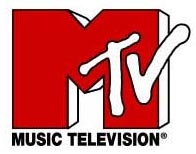 MTV Networks will be giving away every second of every episode of the hit show South Park online next year. The move follows a decision earlier this year to put an extensive archive of footage from The Daily Show With Jon Stewart online.
MTV Networks will be giving away every second of every episode of the hit show South Park online next year. The move follows a decision earlier this year to put an extensive archive of footage from The Daily Show With Jon Stewart online.
"'The Daily Show' was the first out of the gate and it's been a big success and it's a nice little model for us to follow," said Mika Salmi, MTV Networks president of global digital media. "There's no limit to which shows we can use at this stage."
"One does not diminish the other by any stretch of the imagination. That is kind of our hat trick," MTV Networks Chairman and Chief Executive Judy McGrath said at the Reuters Media Summit in New York on Wednesday. She was referring to the question of whether the online content would compete with television for the same audience.
That would apparently be news to Viacom executives, who decided to sue YouTube over the availability of clips from their television shows from the viral video giant. The suit, for more than $1 billion, claims that these clips on YouTube threaten the "economic underpinnings of one of the most important sectors of the United States economy."
Read more...
Written by Rich Fiscus @ 28 Nov 2007 10:30
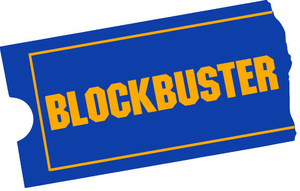 According to Blockbuster CEO Jim Keyes, the company is working on deals with Cell phone manufacturers to market its recently acquired Movielink video download service to mobile phone users.
According to Blockbuster CEO Jim Keyes, the company is working on deals with Cell phone manufacturers to market its recently acquired Movielink video download service to mobile phone users.
"It’s a rare privilege to sit home with my family and watch a DVD," he told a reporter at the Reuters Media Summit in New York. "I do do it, but it is a rare treat to have the time to do that. So, I was always behind on movies."
"Today, I’m finding myself increasingly watching movies by watching them when I can in bite-sized pieces on my Blackberry," he said.
Blockbuster bought Movielink earlier this year. Before the acquisition it was considered something of a symbol of Hollywood's failure to market downloadable video to the masses. Keyes believes Blockbuster can turn Movielink's fortunes around by integrating it into the company's other operations, which currently include not just brick and mortar stores and an online rental service, but also a growing presence in the kiosk market.
He's also counting on the moves he's made in his short tenure with the company to bring their financial future into better focus by the beginning of next year. "We think we will be a in a position by the first quarter to have enough of the transition in place to get good read on what 2008 will look like," he said. "Going forward, as we continue to evolve Blockbuster, we want to bring our shareholders with us."
Read more...
Written by Rich Fiscus @ 28 Nov 2007 10:09
 According to analysts at MultiMedia Intelligence, sales of mobil phones with multimedia capabilities will exceed television sales in 2008. It would be the first year this has happened.
According to analysts at MultiMedia Intelligence, sales of mobil phones with multimedia capabilities will exceed television sales in 2008. It would be the first year this has happened.
The agency's report indicates that worldwide shipments of phones equipped with multimedia playback features will exceed 300 million units next year, exceeding predictions for television sales during the same period. It also predicts that by 2011 around 90% of all available mobile phones will include an image sensor (camera), as well as MP3 and video players. Currently around 60% of phones support all these features.
Touch screens, a relatively new innovation in mobile phones, are also expected to see phenomenal growth in the near future. MultiMedia Intelligence analysts predict that sales of phones using the technology will be have reached 200 million units by 2011.
Source: InformationWeek
Written by Rich Fiscus @ 28 Nov 2007 9:52
 EMI, one of the so-called "Big Four" music labels primarily responsible for funding the RIAA, as well as similar industry organizations outside the U.S, is starting to look at contributions to such groups with a critical eye and ask whether they're getting their money's worth, and apparently the answer is no.
EMI, one of the so-called "Big Four" music labels primarily responsible for funding the RIAA, as well as similar industry organizations outside the U.S, is starting to look at contributions to such groups with a critical eye and ask whether they're getting their money's worth, and apparently the answer is no.
The British music label, which was recently purchased by a private equity fund, may be prepared to drastically cut contributions to trade groups. These groups perform a number of functions, both within the industry and in the lobbying arena. In recent years they've also become infamous for bringing copyright infringement lawsuits against thousands of people on behalf of labels like EMI.
Although they wouldn't confirm the story, an IFPI official told Reuters that "as one would expect in this market, there is a focus on efficiencies and savings." He also indicated that the organization, a sort of international version of the RIAA, is currently in the process of setting their operating budget for next year.
With online and brick and mortar retailers alike calling for the recording industry to switch to more customer friendly tactics, and EMI even leading the charge to get rid of DRM in commercial music downloads, this move shouldn't be particularly surprising to anyone familiar with music industry events over the last several months.
Read more...
Written by Rich Fiscus @ 28 Nov 2007 9:28
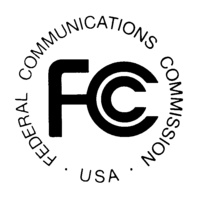 Facing opposition from other commisioners, and vocal criticism from the cable industry, Chairman Kevin Martin has decided to drop a proposal that would give the FCC stronger regulatory control over the U.S. cable industry, which now includes not only traditional cable companies, but also AT&T's U-verse IPTV service.
Facing opposition from other commisioners, and vocal criticism from the cable industry, Chairman Kevin Martin has decided to drop a proposal that would give the FCC stronger regulatory control over the U.S. cable industry, which now includes not only traditional cable companies, but also AT&T's U-verse IPTV service.
Instead, cable companies will be required to provide the FCC with the most comprehensive information they ever have. In recent days Martin has indicated that he believes that cable companies now have service available to at least 70% of all U.S. residences, and that at least 70% of the people for whom the service is available are actual subscribers. These are the thresholds required for the FCC to increase regulatory control over cable TV according to 1984 cable bill.
His claims were based on the results of an independent study that he now admits might not be definitive enough to warrant FCC action. He hopes that the additional information provided by cable companies will help make his case next time around.
It's easy to side with Martin on his primary concern, which is the way cable channels are packaged, with consumers required to buy entire packages, sometimes just to get a single Channel. In the past Martin has stated a preference for requiring cable providers to offer so called ala carte channel selections, allowing customers to select individual channels for a lower price than current packages.
Read more...
Written by Rich Fiscus @ 28 Nov 2007 4:48
 Seeing the recent success of DVD kiosk provider Redbook, Blockbuster has announced plans to provide DVD rental kiosks at Family Dollar and Papa John's pizza locations as part of a trial run for the new service.
Seeing the recent success of DVD kiosk provider Redbook, Blockbuster has announced plans to provide DVD rental kiosks at Family Dollar and Papa John's pizza locations as part of a trial run for the new service.
In recent months Blockbuster's new CEO, James Keyes, has them focusing more on their traditional (brick and mortar) rental business, rather than trying to combat Internet DVD rental service Netflix on their own turf. However, the rental kiosk business has seen massive growth this year, in part because of Blockbuster rival Redbox getting kiosks positioned at McDonald's restaraunts around the U.S.
Just yesterday Redbox announced that their kiosks now give them a presence in more locations than Blockbuster, whose business is still conducted primarily at dedicated rental stores. No doubt Blockbuster executitves are going to be make a point of becoming a major player in the early stages of the kiosk market to avoid the problems they faced when Netflix became a serious competitor.
According to Blockbuster CEO James Keyes, “The next, bigger trend is for vending, and we are well positioned to be able to play through an electronic kiosk.”
Read more...
Written by Rich Fiscus @ 28 Nov 2007 4:26
 It looks like the first shipments of HD VMD set-top players to hit the U.S. will be courtesy of online retailer PC Rush. They've apparently ordered 10,000 units that they'll start selling in December.
It looks like the first shipments of HD VMD set-top players to hit the U.S. will be courtesy of online retailer PC Rush. They've apparently ordered 10,000 units that they'll start selling in December.
HD VMD (Versatile Multilayer Disc) players are intended as an alternative to expensive next-generation formats like HD DVD and Blu-ray. Unlike those formats it's built entirely around red laser media similar to DVDs. Despite not having any market presence at all in the U.S., HD VMD has already carved out a significant niche for itself in countries like India. In fact India's highly successful studio Bollywood has plans to release at least 50 movies in the format.
So far no major studio has any plans to release movies in HD VMD format, which isn't surprising since they've all thrown their support behind one of the two major players, HD DVD and Blu-ray. There are a few major studio movies available in other countries, most notably Australia, in the format. This is due to production deals that give companies outside the U.S. distribution rights in some countries.
Read more...
Written by Rich Fiscus @ 27 Nov 2007 6:22
 BBC officials are coming to the realization that they've greatly underestimated the income potential from Web based services. BBC Worldwide chief executive John Smith said on Tuesday that until recently the company has been operating under the assumption that they might be able to derive at least 10% of total income from the Web. As it turns out that figure apears to be more than a little pessimistic.
BBC officials are coming to the realization that they've greatly underestimated the income potential from Web based services. BBC Worldwide chief executive John Smith said on Tuesday that until recently the company has been operating under the assumption that they might be able to derive at least 10% of total income from the Web. As it turns out that figure apears to be more than a little pessimistic.
"We think we will be able to beat it. It has gone from one percent to nearly four percent in just 18 months. So already we are starting to see that probably we have under-egged the extent to which we will see more of our revenues coming from the Internet," Smith told a media leaders conference in London.
Smith also indicated that as the broadcaster's commercial arm,BBC Worldwide will be putting an emphasis on purchasing companies in order to shore up weak spots in current Web offerings. "You have got to fill gaps through M&A activity and there are all sorts of gaps for us," he said, noting Channel distribution, magazine portfolios and intellectual property.
Earlier this year, under Smith's leadership, BBC Worldwide purchased travel publisher Lonely Planet for nearly $100 million. Since the purchase they've been hard at work both updating the publisher's web presence and folding it into the BBC website. They hope to leverage the company to provide content for a number of other BBC ventures, including on-demand viewing and social networking.
Read more...
Written by Rich Fiscus @ 27 Nov 2007 3:52
 Redbox, the leading DVD rental kiosk operator in the U.S. announced that they now has a presence at more locations than Blockbuster.
Redbox, the leading DVD rental kiosk operator in the U.S. announced that they now has a presence at more locations than Blockbuster.
Blockbuster operates more than 4,800 stores in the U.S., as well as 10 Blockbuster Express vending machines at Papa John's and Family Dollar locations in Lexington, KY, and an undisclosed number of vending machines in other cities. By comparison, Redbox kiosks have spread to 46 states, thanks largely to their presence outside McDonald's restaurants.
Despite not knowing Blockbuster's exact numbers Redbox spokeswoman Kristin Zanini said "we feel confident that we have surpassed them nationwide." Zanini wouldn't discuss how many rentals the kiosks have in a given month, but did indicate that in the 12 month period starting in June of last year they rented out 11 million movies. Each kiosk carries 500 new release DVDs, including between 100 and 150 different titles at a given time.
“Redbox offers a level of service and convenience that our competitors simply can’t provide,” said Gregg Kaplan, Redbox CEO. “Customers continue to embrace the Redbox service, and our proven technology and production timeline have allowed us to expand rapidly in the competitive home entertainment industry. We expect this growth to continue at a rapid pace through 2007 and beyond, as Redbox expands its leadership position and becomes a household name in communities nationwide.”
Read more...
Written by Rich Fiscus @ 26 Nov 2007 5:50
 Toshiba and CBS Home Entertainment are running a promotion for the new HD DVD box set for the first season of "Star Trek: The Original Series." The deal, called "A Stunning Offer," allows purchasers of the TV series box set and Toshiba HD DVD player a coupon to get a remote control shaped like a phaser from the popular series.
Toshiba and CBS Home Entertainment are running a promotion for the new HD DVD box set for the first season of "Star Trek: The Original Series." The deal, called "A Stunning Offer," allows purchasers of the TV series box set and Toshiba HD DVD player a coupon to get a remote control shaped like a phaser from the popular series.
Besides the promotion with Toshiba, the box set is also somewhat revolutionary in that it's a set of hybrid HD DVDs, which also includes a standard definition (DVD-Video) version of each Title.
“HD DVD is taking ‘The Original Series’ where no ‘Trek’ episode has gone before,” said Louis Masses, Toshiba digital A/V group business development director. “The leading-edge technologies in HD DVD players are taking ‘Star Trek: The Original Series’ to a truly new dimension for fans. Partnering with CBS, we are excited to be bringing this landmark TV series into the homes of fans and to be developing a promotion that appealed specifically to the ‘Trek’ fan.”
Read more...
Written by Rich Fiscus @ 26 Nov 2007 5:13
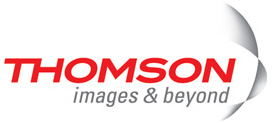 Thomson, owner of companies including RCA and Technicolor, is working ot develop a Blu-ray Authoring environment that allows DVD authors to take advantage of the format's advanced programmabillity without learning Java first. They're calling their authoring product BD-JIVE, which stands for Blu-ray Disc-Java Interpreted Visual Expression.
Thomson, owner of companies including RCA and Technicolor, is working ot develop a Blu-ray Authoring environment that allows DVD authors to take advantage of the format's advanced programmabillity without learning Java first. They're calling their authoring product BD-JIVE, which stands for Blu-ray Disc-Java Interpreted Visual Expression.
Unlike HD DVD, which uses a much simple scripting language (ECMA Script) to replace DVD's relatively crude selection of virtual machine (VM) commands, Blu-ray features a version of Java known as BD-Java. While this opens up a nearly unlimited range of potential features for a BD-MV (Blu-ray Movie) disc, it also presents a challenge for authoring houses, which typically aren't staffed with a large number of (or any) Java developers.
Arguably what this software really does is use Java to produce a framework that resemble's ECMA Script, which is essentially an implementation of Javascript. While ECMA Script is more complex than DVD-VM language, the learning curve is certainly not as steep as Java. On the other hand, as authoring tools continue to be written vendors may take advantage of BD-Java to add an arry of features that just aren't possible with any other standalone player format.
Read more...
Written by Rich Fiscus @ 25 Nov 2007 6:58
 The band My Bloody Valentine is planning to promote their upcoming reunion by releasing new material on the internet, bypassing the use of a music label.
The band My Bloody Valentine is planning to promote their upcoming reunion by releasing new material on the internet, bypassing the use of a music label.
"The plan is that they will release the album themselves via the Internet, but there will also probably be a vinyl release," the band's London-based manager, Vinita Joshi, said. He added that they don't have any plans to use the "pay what you want" model being used by Radiohead to promote their new album.
Although no official numbers have been released for the Radiohead downloads, at least one market analysis firm estimates the revenue has been less than what the band would have made in royalties per CD. Of course that doesn't take into account how many consumers downloading the album would also have purchased it.
"At the moment, all I can say is that Kevin is getting the band back together and they will go into the studio next month to work on the new record," Joshi said, referring to notoriously reclusive singer/guitarist and bandleader Kevin Shields.
Source: Reuters
Written by Rich Fiscus @ 25 Nov 2007 6:41
 Security analysts are warning that a bug in Apple's QuickTime threatens to allow hackers to install malware on computers running Windows XP or Vista or even get a list of passwords from the target computer.
Security analysts are warning that a bug in Apple's QuickTime threatens to allow hackers to install malware on computers running Windows XP or Vista or even get a list of passwords from the target computer.
According to Symantec analyst Anthony Roe, the flaw is more easily exploited in Vista than it would be under normal circumstances because Apple developers failed to take advantage of a Vista feature called Address Space Layout Randomization (ASLR). ASLR allows Windows Vista to load binaries (like quicktime) into memory in random locations, making it harder for an attacker to identify a particualar piece of code among all the other data stored in memory.
Another Symantec researcher, Patrick Jungles, added that QuickTime vulnerabilities usually draw attackers quickly. "In the past, we have seen a very short period of time between the release of proof-of-concept exploits for QuickTime vulnerabilities and the development of working exploits by attackers," said Jungles in a note to customers of his company's DeepSight threat network. "Popular applications such as QuickTime are strong candidates for exploitation in the wild."
Read more...
Written by Rich Fiscus @ 24 Nov 2007 2:58
 An indie rock band called Arcade Fire has found a unique promotion for their second album. The group has released a video online for the disc's Title Track - something many bands do. What makes it unique is that the viewer can use their mouse to control the action in the video. It's the latest development in what's being called reactive video.
An indie rock band called Arcade Fire has found a unique promotion for their second album. The group has released a video online for the disc's Title Track - something many bands do. What makes it unique is that the viewer can use their mouse to control the action in the video. It's the latest development in what's being called reactive video.
"Traditional videos are mostly viewed on YouTube now," says creator Vincent Morisset, who also develops the band's Web sites. "I thought, 'Why spend $200,000 on a production and finish with this tiny pixilated thing? Since it will end up on a computer, let's take advantage of the possibilities that medium offers.'"
"Videos made specifically for the Internet are catching on, because they really get fans engaged," says Londoner Marc Connor, who manages Canadian opera crossover act RyanDan.
A recent RyanDan web video produced in association with interactive multimedia firm Coull features a different type of interactivity. The video for their Like The Sun single featured information and hyperlinks directing viewers to other online resources from a forum to online shopping for band merchandise.
Read more...
Written by Rich Fiscus @ 24 Nov 2007 1:29
 U.S. consumers looking for good deals on an HDTV or Blu-ray player started finding Christmas savings a day early this year. That's because many retailers posted holiday deals on their websites on Thursday, a day before the traditional Black Friday sales "officially" kick of the buying season.
U.S. consumers looking for good deals on an HDTV or Blu-ray player started finding Christmas savings a day early this year. That's because many retailers posted holiday deals on their websites on Thursday, a day before the traditional Black Friday sales "officially" kick of the buying season.
While there have been some experiments in the past that had brick and mortar stores open on Thanksgiving, a day when almost every retailer in the U.S. closes their doors, but those events have never captured enough attention to become annual events.
The big difference in this case is that shoppers didn't have to leave their homes to purchase a 47" Magnavox HDTV for $1,298 from Wal-Mart or a $400 Sony Blu-ray player from Circuit City.
According to the CEO of Walmart.com, Raul Vazquez, the company's Web page has been on the rise leading up to the Christmas season. Vazquez was expecting around 10 million visitors to the site for the Thanksgiving deals.
Source: Reuters
Written by Rich Fiscus @ 23 Nov 2007 6:34
 Responding to declining U.K. music sales, the Entertainment Retailers Association - an organization representing music retailers, is blaming digital copy protection for the slow pace at which consumers have embraced downloaded music.
Responding to declining U.K. music sales, the Entertainment Retailers Association - an organization representing music retailers, is blaming digital copy protection for the slow pace at which consumers have embraced downloaded music.
ERA director Kim Bayley told the Financial Times this week that the copy protection mechanisms are "stifling growth and working against the consumer interest." Citing a recent study conducted in the UK which indicated that consumers overwhelmingly prefer music without copy protection mechanisms, Bayley says that DRM "puts consumers off."
According to an article in the Financial Times the music industry counts on fourth quarter sales for 40% of its annual revenue, but so far the slower than usual period leading up to the Christmas buying season have many retailers concerned that sales will be lower than anticipated this year.
Although it's questionable at how much DRM affects online music sales, it's clear that consumers have had an overwhelmingly positive reaction to DRM-free downloads, such as those pioneered by EMI. Maybe now it's time to ask why we have to settle for losslessly encoded files.
Source: Ars Technica
Written by Rich Fiscus @ 23 Nov 2007 6:17
 As DVD sales continue to fall and Hollywood executives struggle to find new ways to sell more discs, they've started repackaging TV show discs in box sets that contain every episode of a particular series. It's expected that there should be 40 of these mega TV series collections available from retailers.
As DVD sales continue to fall and Hollywood executives struggle to find new ways to sell more discs, they've started repackaging TV show discs in box sets that contain every episode of a particular series. It's expected that there should be 40 of these mega TV series collections available from retailers.
Although somewhat new in terms of TV show discs, this is hardly a groundbreaking development for DVD. Since DVD sales took off several years ago studios have released version after version of some movies, with multiple versions sometimes only differing in the packaging used.
Buyers for retail outlets aren't sold on these box sets yet. “A problem is that most saw the success of Sex and the City, and studios said, 'We can do that,'” Newbury Comics buyer Ian Leshin said. “That was a cult show that people really wanted to own. This time, it seems there are a lot of releases that are coming out just because they happened to finish the whole series.”
“Last year, we had to make sure we had a bunch of [20th Century Fox Home Entertainment’s] Buffy the Vampire complete sets and a bunch of Sex and the City, but this time, I’m not as worried about shelf space, because we won’t need to carry as many copies,” said Leshin. In fact he says the chain will only be purchasing a single set of each title per store pending actual sales data.
Read more...
Written by Rich Fiscus @ 22 Nov 2007 6:16
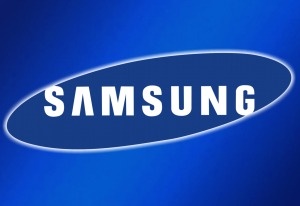 South Korea's Samsung Electronics will be investing over $2 billion dollars to expand its line of LCD displays next year. This isn't exactly revolutionary as Samsung is the number one LCD manufacturer in the world. More interesting is the fact that the move will be made independently of their current LCD manufacturing partner Sony.
South Korea's Samsung Electronics will be investing over $2 billion dollars to expand its line of LCD displays next year. This isn't exactly revolutionary as Samsung is the number one LCD manufacturer in the world. More interesting is the fact that the move will be made independently of their current LCD manufacturing partner Sony.
The investment will go toward development of LCD displays between 40 and 50 inches. Over the last several months there has been a noticeable shift among flat panel manufacturers toward concentrating on larger displays, which typically have a higher margin for manufacturers than smaller screens.
Competition between LCD and plasma displays has also reached an all time high. With the inroads made by LCD manufacturers, especially Vizio, plasma technology has seen a lot of high profile innovation intended to maintain enough distinction between it and LCD to stimulate sales.
Also in the last few months Samsung's sales lead has withstood at least a minor threat from upstart manufacturer Vizio. During the second quarter Vizio shipped more flat panel televisions than any other company, including Samsung, however the prevailing wisdom in the electronics industry is that Vizio's meteoric rise wasn't quite as impressive as originally reported. Once retailers established new stock levels for Vizio displays, Samsung regained their place as the number one flat panel TV supplier in the third quarter.
Read more...
Written by Rich Fiscus @ 22 Nov 2007 11:37
 Starting next year it may be possible for cable internet providers to offer speeds as high as 100Mbps in some areas thanks to new cable modem technology. CableLabs is currently testing modems from five manufacturers that are intended to meet the DOCSIS 3.0 specifications.
Starting next year it may be possible for cable internet providers to offer speeds as high as 100Mbps in some areas thanks to new cable modem technology. CableLabs is currently testing modems from five manufacturers that are intended to meet the DOCSIS 3.0 specifications.
Data Over Cable Service Interface Specifications, or DOCSIS, is an ever evolving set of standards developed by a number of cable modem manufacturers, as well as certification authority CableLabs. Although DOCSIS 2.0 has been around since 2001, most cable internet providers haven't gotten past adopting v1.1. The primary difference between the two is a higher upload capacity for DOCSIS 2.0. Since most cable companies only offer plans with relatively low upload speeds - as little as 10% of download speed in some cases, the only time this becomes an issue currently is when VOIP capabilities are added.
Certainly Bandwidth limitations are becoming a problem for broadband internet providers, who increasingly see customers looking to use the Internet for Streaming and downloading video, sometimes in high definition, and often during peak internet usage hours. At the same time companies like Verizon and AT&T are building data networks from the ground up which offer some consumers speeds slightly higher than what the DOCSIS 1.1 or 2.0 standards allow. DOCSIS 3.0 allows for much higher speeds, as well as IPv6 network management support.
Of course speed doesn't exist in a vacuum. Accordig to Gartner analyst Patti Reali "Cable's got to be ready with a [comparable] product that's not going to break the bank."
Read more...
Written by Rich Fiscus @ 21 Nov 2007 3:16
 Electronics superstore chain Circuit City is hoping to convince some of the workers they fired earlier this year because they were "overpaid" to return to work at locations around the country. Letters were sent to many of these former employees to fill positions opened by normal employee turnover and new store openings.
Electronics superstore chain Circuit City is hoping to convince some of the workers they fired earlier this year because they were "overpaid" to return to work at locations around the country. Letters were sent to many of these former employees to fill positions opened by normal employee turnover and new store openings.
In March of this year Circuit City made the move to get rid of 3,400 employees. They determined that these employees were paid too well for their positions and could be replaced with lower paid personnel. The workers were given no advance notice of the decision, although they did receive a severance package. At that time analysts were sceptical of the move's merit. "It's definitely going to have some cost-savings, but I think the bigger impact could be seen in weaker, poor service," said Timothy Allen, an analyst with Jefferies & Co. "I have a feeling the people they're letting go have probably been there longer, have more experience, more product knowledge."
As the number two U.S. electronics retailer, Circuit City has struggled to keep costs down to remain competitive and profitable at the same time. The firings were intended to cut costs within the company by $100 million this year, and $140 million annually starting next year. So far company executives haven't commented on the letters, which were first reported by the Wall Street Journal.
Read more...
Written by Rich Fiscus @ 21 Nov 2007 2:45
 Users of fourteen month old video service BrightSpot.TV have been informed that the service is shutting down. The site, run by BrightSpot Media, asked users to watch commercials in exchange for credit towards various subscription services.
Users of fourteen month old video service BrightSpot.TV have been informed that the service is shutting down. The site, run by BrightSpot Media, asked users to watch commercials in exchange for credit towards various subscription services.
The following notice replaced the service's normal website:
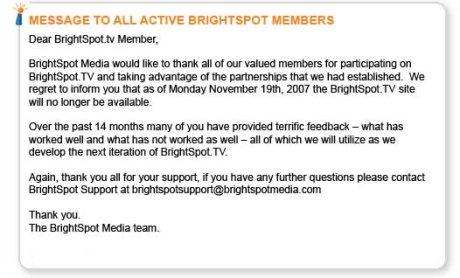
BrightSpot Media CEO Aaron Martens blames advertisers who aren't interested in adopting new business models for the Internet age for the service's failure. In an email he said "Advertisers have been relatively slow to adopt new models when it's so clear they absolutely need to change their thinking."
BrightSpot Media's backers include Phoenix Suns president Jerry Colangelo and Chicago Bulls and White Sox owner Jerry Reinsdorf, and has been advised in the past by McDonald's Chief Marketing Officer Paul Schrage. Former advertisers include Ford Motor Company and McDonald's.
According to sources within the company, BrightSpot Media is nearly out of money and hasn't been able to line up any additional venture capital. They're reportedly hoping to license their technology to a third party instead of relaunching the service themselves. However one has to wonder whether the problem is that advertisers aren't interested in the technology, or whether it's consumers who don't consider the payoff to be worth the time invested watching ads.
Read more...
Written by Rich Fiscus @ 21 Nov 2007 1:50
 MPAA Washington general Counsel Fritz Attaway doesn't see anything wrong with a proposed law that would require universities to provide students with some kind of alternative to illegal P2P downloads in order to reduce piracy on college campuses. While university officials and consumer rights groups have been critical of the bill's wording, proponents say that if universities are unable or unwilling to implement such a plan there would be no repercussions under the law.
MPAA Washington general Counsel Fritz Attaway doesn't see anything wrong with a proposed law that would require universities to provide students with some kind of alternative to illegal P2P downloads in order to reduce piracy on college campuses. While university officials and consumer rights groups have been critical of the bill's wording, proponents say that if universities are unable or unwilling to implement such a plan there would be no repercussions under the law.
While participating in a panel on Monday organized by the Federal Communications Bar Association Attaway said "When the government is subsidizing universities...and it discovers that those universities are spending a lot of taxpayers' money to build digital networks that are being used primarily to allow college students to traffic in infringing content, I think it's perfectly legitimate for Congress to say, wait a minute, if we're giving you money, we don't want it to be used to help college kids infringe copyright."
Another panel member, Gigi Sohn, president of the digital-rights advocacy group Public Knowledge disagreed, asking "Why do you put things in bills that you don't want to enforce at some point?." She added "Even if I agree, and I don't, that it's toothless, I don't want that language in there for some other Congress to give it some teeth."
Read more...
Written by Rich Fiscus @ 21 Nov 2007 1:32
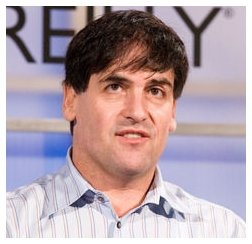 In a blog titled "An Open Letter to Comcast and Every cable/Telco on P2P" Mark Cuban urges broadband Internet providers to "BLOCK P2P TRAFFIC , PLEASE."
In a blog titled "An Open Letter to Comcast and Every cable/Telco on P2P" Mark Cuban urges broadband Internet providers to "BLOCK P2P TRAFFIC , PLEASE."
Calling P2P users "freeloaders" he urged internet service providers to charge commercial rates to users Seeding or relaying P2P traffic. He said "The last thing I want slowing my internet service down are P2P freeloaders. Thats right, P2P content distributors are nothing more than freeloaders. The only person/organization that benefits from P2P usage are those that are trying to distribute content and want to distribute it on someone else's Bandwidth dime."
The outspoken billionaire arguably has an interest in freeing up bandwidth currently being used for P2P traffic. His 2929 Entertainment venture is working to implement a distribution plan that includes simultaneously releasing movies theatrically at the same time they're available in home video formats. No doubt he'd benefit from reduced P2P traffic as it would free up bandwidth that could be used to deliver quality hi-def content. However, rival content providers are testing P2P technology, most notably BitTorrent, for their own content delivery. Even the music industry is looking at the potential of a P2P distribution model. No doubt they're less than thrilled with his proposal.
Read more...
Written by Rich Fiscus @ 21 Nov 2007 12:47
 A letter from Washington D.C. based lobbying organization the Copyright Alliance to 17 Democratic and Republican U.S. Presidential candidates asks them to support "meaningful copyright protection." The letter, sent on Tuesday, also includes a short questionnaire that the lobbyists ask each candidate to fill out and return to them.
A letter from Washington D.C. based lobbying organization the Copyright Alliance to 17 Democratic and Republican U.S. Presidential candidates asks them to support "meaningful copyright protection." The letter, sent on Tuesday, also includes a short questionnaire that the lobbyists ask each candidate to fill out and return to them.
As you would expect from a group that lobbies on behalf of both RIAA and MPAA members, as well as major software and related companies such as Microsoft and the Business Software Alliance, the Copyright Alliance wants candidates to place greater emphasis on copyright enforcement both domestically and abroad. One question asks "How would you protect the incentive to create by committing sufficient resources to support effective civil and criminal enforcement of copyright laws domestically and internationally?"
Another question posed by the group is "How would you promote the progress of science and creativity, as enumerated in the U.S. Constitution, by upholding and strengthening copyright law and preventing its diminishment?" As it happens this is one of the areas where consumer groups and copyright holders often disagree. Extensions to copyright terms, including those from the Copyright Term Extension Act enacted nearly a decade ago, have sparked criticism that they have the opposite effect the framers of the U.S. Constitution intended when they gave Congress the responsibility "To promote the Progress of Science and useful Arts, by securing for Limited Times to Authors and Inventors the exclusive Right to their respective Writings and Discoveries." This passage, commonly known as the Copyright Clause, is the legal basis for all U.S. intellectual property law, including the rules for copyrights and patents.
Read more...
Written by Rich Fiscus @ 20 Nov 2007 11:27
 The RIAA's power to issue subpoenas identifying college students in file sharing cases may have been dealt a major setback when a Federal judge ruled that the Cable Communications Policy Act (CCPA), which RIAA lawyers rely on to subpoena network user identities, doesn't apply to universities.
The RIAA's power to issue subpoenas identifying college students in file sharing cases may have been dealt a major setback when a Federal judge ruled that the Cable Communications Policy Act (CCPA), which RIAA lawyers rely on to subpoena network user identities, doesn't apply to universities.
Now Judge Kollar-Kotelly in Washington D.C. has ordered RIAA lawyers to explain why subpoenas gotten under the authority of the CCPA shouldn't be thrown out. The order comes after one of the George Washington University students the RIAA is suing filed a motion arguing that there is no law that authorizes the type of subpoenas used by the RIAA.
While the judge who made the original ruling suggested that the DMCA might be another option for suits against students, but since the universities don't qualify as content providers for purposes of DMCA takedown requests, they don't carry any legal liability under that law, and can't be issued takedown requests for P2P traffic moving through their networks.
Source: Ars Technica
Written by Rich Fiscus @ 20 Nov 2007 11:09
 Yesterday the BBC Trust announced plans for a high definition Channel to be available on the Sky satellite service. Despite calls from some for the BBC to broadcast 4 hours of Freeview hi-def content per day, the governing body decided against that course because it would require equipment that would likely be obsolete after the official Freeview HDTV standard is complete.
Yesterday the BBC Trust announced plans for a high definition Channel to be available on the Sky satellite service. Despite calls from some for the BBC to broadcast 4 hours of Freeview hi-def content per day, the governing body decided against that course because it would require equipment that would likely be obsolete after the official Freeview HDTV standard is complete.
Diane Coyle, BBC Trustee and Chair of the Public Value Test Steering Group said "The Trust is pleased to approve the new HD television channel on all platforms. After considering all the evidence we are satisfied that the public value generated is sufficiently high and there is unlikely to be a negative impact on the market.
"High Definition will eventually become a significant broadcasting standard and, as with all BBC services for which everyone pays, it is essential that this is universally available as soon as possible. This means the Trust will consider in spring 2008 the timing of the launch on Freeview, when there should be greater clarity on HD broadcast standards and the spectrum capacity available for the channel."
Read more...
Written by Rich Fiscus @ 20 Nov 2007 10:51
 Despite reports that the 747 page College Opportunity and Affordability Act of 2007 includes provisions that would force universities to provide alternative methods to P2P for downloading music, and claims from officials representing a variety of schools, apparently no such provision exists.
Despite reports that the 747 page College Opportunity and Affordability Act of 2007 includes provisions that would force universities to provide alternative methods to P2P for downloading music, and claims from officials representing a variety of schools, apparently no such provision exists.
It's true that the bill does have language asking universities to "develop a plan for offering alternatives to illegal downloading or peer-to-peer distribution of intellectual property as well as a plan to explore technology-based deterrents to prevent such illegal activity." However, no tests for compliance or penalties for failure to develop such a plan is included, and it does only suggest they do this "to the extent practicable."
If university officials are overreacting, it's certainly understandable why they would assume the worst of the bill. Just this year an amendment was added to a financial aid bill that would have created a list of the campuses deemed the worst copyright "offenders." It was later withdrawn, but only after a very public outcry from educators.
Still, the attention generated over this bill may help ensure that the sort of measures educators are already worried about don't get added at the last minute. Even if the situation isn't as dire as critics claim, one thing politicians have shown is a willingness to quietly add copyright enforcement clauses into education related legislation. It can't hurt to keep paying attention.
Read more...
Written by Rich Fiscus @ 20 Nov 2007 10:14
 Retailer Hastings Entertainment is reporting a third quarter profit for the first time since becoming a publicly traded company nearly a decade ago in 1998.
Retailer Hastings Entertainment is reporting a third quarter profit for the first time since becoming a publicly traded company nearly a decade ago in 1998.
Like many retailers, Hastings' third quarter revenue was boosted by the release of Halo 3 for the Xbox 360. This also spurred increased sales of the Xbox 360 console.
Another good sign for the company was an increase in DVD revenue, with sales of both new and used titles improving. At the same time rentals took a hit, which Hastings executives blame partially on the titles being released and partially on consumer preferences shifting away from rental in favor of purchasing DVDs.
Not surprisingly, music revenue was down due to declining CD sales.
“For the first time in Hastings’ history as a public company, we earned a profit in the third quarter,” Hastings CEO John Marmaduke said. “In what continues to be a challenging retail environment in music and rental, we were able to improve pre-tax profits by $3.7 million from the third quarter of last year. Our merchandising and buying teams have produced greater margin rates in new and used products for the third consecutive quarter. We will continue our focus on margin and inventory management. This, coupled with a continued focus on cost controls, has positioned us for continued revenue and income growth in the fourth quarter.”
Read more...
Written by Rich Fiscus @ 20 Nov 2007 9:31
 Under a licensing deal announced Today, Yahoo will be allowed to enable users of their services to include recordings owned by Sony BMG Music Entertainment in their own original content. In exchange, Sony BMG will be receiving a cut of ad revenue from the clips.
Under a licensing deal announced Today, Yahoo will be allowed to enable users of their services to include recordings owned by Sony BMG Music Entertainment in their own original content. In exchange, Sony BMG will be receiving a cut of ad revenue from the clips.
With the success of viral video sites like YouTube and social networking portals like MySpace and Facebook, content owners are scrambling to find ways they can collect royalties for user generated content. There are two basic approaches in play right now. Some current deals are similar to this one, with content owners taking a relatively hands-off approach to exactly what content will be provided to consumers. Others involve content owners licensing limited media clips which consumers can use for free, and then offering extra services like sending them to someone's mobile phone, for a small fee.
Perhaps due to the many markets Sony competes in, they haven't been very successful at leveraging their content for internet distribution. Even the PS3, which the company has always seen as a home entertainment platform, lags behind competition from Microsoft. While Xbox Live has been able to both sell and rent content to a growing number of console owners, Sony so far hasn't managed to leverage the vast amount of content they own to create a revenue stream for console customers.
Read more...
Written by Rich Fiscus @ 19 Nov 2007 4:23
 The Free Software Foundation (FSF) has created an expert witness fund to help the targets of RIAA lawsuits defend themselves. While the RIAA's filings include expert witness testimony, their witnesses haven't held up well to scrutiny.
The Free Software Foundation (FSF) has created an expert witness fund to help the targets of RIAA lawsuits defend themselves. While the RIAA's filings include expert witness testimony, their witnesses haven't held up well to scrutiny.
If defense lawyers can effectively cast doubt on the plaintiffs' experts' claims, presumably access to experts of their own would be even more helpful in many cases. The FSF is asking for donations for the fund to "provide computer expert witnesses to combat RIAA's ongoing lawsuits, and to defend against the RIAA's attempt to redefine copyright law."
The guidelines to receive money from the fund take three primary factors into account:
- The importance of the case to critical legal issues. The demonstrated commitment of the defendant, and/or of the defendant's attorney if the defendant has an attorney, to seeing his or her case through to conclusion, and to fighting for important legal issues. The facts and circumstances of the particular case.
- The level of investment made by the defendant, and/or by the defendant's attorney if the defendant has an attorney, in time, money, and labor, in defending the case. The legal posture of the case. The need for assistance. The need for technical expertise in the case.
- The quality and commitment of technical expertise which may have been contributed to the case. The competing needs of other cases.
|
"It's a way the tech community can help these RIAA victims," said New York Lawyer Ray Beckerman. Beckerman, who operates the blog Recording Industry vs The People, will help decide who will receive money.
Read more...
Written by Rich Fiscus @ 19 Nov 2007 3:56
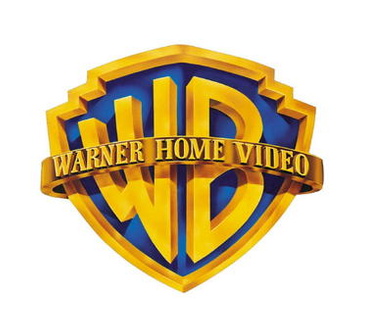 Warner Bros. Intl. Television Distribution is trying to create an entire network of on-demand channels, ranging from cable and satellite to broadband delivery. The channels will all be marketed under the new brand of Warner TV.
Warner Bros. Intl. Television Distribution is trying to create an entire network of on-demand channels, ranging from cable and satellite to broadband delivery. The channels will all be marketed under the new brand of Warner TV.
Warner TV channels will give viewers access to a selection of movies and TV shows, but unlike standard cable television on-demand services the selection will change regularly throughout the day. Another apparent benefit over traditional programming is the flexibility to customize each Channel to user preferences.
"It's a brand new revenue stream," said Jeff Schlesinger, president of Warner Bros. International TV. "The costs here are much lower than creating a linear channel. You don't have as much on-air promotion that you have to do. You don't have as much scheduling or advertising sales infrastructure. You don't have to worry about commercial insertion."
"We're not looking to undermine our broadcasters in any way, and frankly, if you don't have your shows on the big channels, no one will be interested in finding them in an on-demand zone," Schlesinger said. "For TV product and features, this is all a secondary window. It's complementary."
Read more...
Written by Rich Fiscus @ 19 Nov 2007 3:43
 TitleMatch Entertainment Group, an on-demand DVD manufacturing company will be testing a service that delivers DVDs along with grocery deliveries.
TitleMatch Entertainment Group, an on-demand DVD manufacturing company will be testing a service that delivers DVDs along with grocery deliveries.
"The customer orders their groceries and a movie online. The movie is burned and shipped with the grocery order within 24 hours," said Mary Litchhult, VP of business development for TitleMatch. The service is slated to enter testing in the Chicago area near the beginning of next year.
Litchhult also indicated that TitleMatch is working with a major retailer to put DVD burning kiosks in 200 stores, but she wasn't able to name their partner. She did say that the kiosks will be able to offer up to 1,000 movies.
Source: Video Business
Written by Rich Fiscus @ 19 Nov 2007 3:18
 Carl Icahn, the major Blockbuster Video investor who led the charge to get rid of former CEO John Antioco and replace him with current head James Keyes, increased his ownership in the top U.S. brick and mortar video rental chain by 1.7 million shares. He paid $6.2 million for the shares. Even before the purchase Icahn was Blockbuster's largest single shareholder.
Carl Icahn, the major Blockbuster Video investor who led the charge to get rid of former CEO John Antioco and replace him with current head James Keyes, increased his ownership in the top U.S. brick and mortar video rental chain by 1.7 million shares. He paid $6.2 million for the shares. Even before the purchase Icahn was Blockbuster's largest single shareholder.
Over the last several years Blockbuster has struggled to establish a new identity to allow them to compete with online rental service Netflix. Antioco was responsible for returning Blockbuster to profitibility while apparently competing with Netflix for their customer base for the first time ever. However Netflix has made repeated moves to stay competitive, and Keyes was brought in to refocus Blockbuster on its core business of brick and mortar stores. Despite being number 2 in online rentals, they're dominance in traditional rentals is as strong as ever.
Perhaps Icahn's increased interest in the company is related to Keyes' recent statements regarding future plans. According to Keyes there will be kiosks of some kind in the near future, which could eventually include capabilities for downloading content to mobile devices. Blockbuster also purchased failing online movie service Movielink this year, which they're expected to retool to work with their services at some point in the not to distant future.
Read more...
Written by Rich Fiscus @ 19 Nov 2007 3:02
 According to a special report from Adweek Media, businesses are finally starting to analyze viewer reactions to ads that play prior to Streaming video. With ad support looking like the model of the moment at least, major corporations are trying to ensure they make the most of their opportunities to reach consumers.
According to a special report from Adweek Media, businesses are finally starting to analyze viewer reactions to ads that play prior to Streaming video. With ad support looking like the model of the moment at least, major corporations are trying to ensure they make the most of their opportunities to reach consumers.
Arguably the most critical question being analyzed is how long is too long? Not surprisingly, the answer boils down to "it depends." The first thing that seems to matter is the actual content. If viewers find an ad entertaining they're apparently willing to watch more of it before their video clip. Unlike television ads which are typically 30 or 60 seconds long, pre-rolls - the industry name for video ads that "roll" or play prior to streaming video - are 15 or 30 seconds long. One thing that was clear from their study was an unwillingness to watch longer pre-rolls before video clips that are only a few minutes long themselves.
The second major question, and one that really defines the nature of pre-rolls, is whether it's best to develop original content for the Web or simply recycle television advertising campaigns. The answer here seems a little more predictable. While some ads from television work just as well on the internet, there are some fundamental differences between web and TV interfaces that can reduce the effectiveness of an ad, or even make a good TV ad just plain annoying. A computer monitor is typically smaller, but closer to the viewer. Arguably the viewer is also paying more attention to a pre-roll than a TV spot since it's almost part of the video rather than a break between program segments.
Read more...
Written by Rich Fiscus @ 17 Nov 2007 6:52
 Caroline Grondin, spokesman for the Industry Canada ministry made music and movie executives happy when she announced that Canada should soon have new legislation in place to dramatically reduce the amount of internet piracy in the country. Even aside from Canadian entertainment figures, the country has been getting a lot of pressure from other countries to make substantial changes to copyright law in order to protect content owners' rights.
Caroline Grondin, spokesman for the Industry Canada ministry made music and movie executives happy when she announced that Canada should soon have new legislation in place to dramatically reduce the amount of internet piracy in the country. Even aside from Canadian entertainment figures, the country has been getting a lot of pressure from other countries to make substantial changes to copyright law in order to protect content owners' rights.
"Canada's Copyright Act needs to be reformed to respond to the challenges of the digital age," she said. "New protections proposed for the benefit of rights holders will seek to address online infringement as well as create a legal framework that encourages the rollout, by rights holders, of new business models."
Graham Henderson, president of labels body the Canadian Recording Industry Assn. (CRIA), said the legislation will demonstrate the country's commitment to protecting its songwriters and musicians.
"Is it going to replace our lost revenue every year? Of course not," Henderson said. "But it is a start. Right now, our big problem is that digital sales aren't replacing lost physical sales. A new Copyright Act would help foster new digital business models that haven't appeared in Canada because of piracy."
Read more...
Written by Rich Fiscus @ 17 Nov 2007 6:49
 On Friday NBC announced that Quarterlife, a show that originated on MySpace, will be moving to broadcast television next year. It will be the first time a show has made the move from the internet to television.
On Friday NBC announced that Quarterlife, a show that originated on MySpace, will be moving to broadcast television next year. It will be the first time a show has made the move from the internet to television.
Although this may be an experiment in adapting talent from the web to traditional media outlets, it's not exactly an amateur production. The show's creators already have many years of experience between them, as well as Emmy awards. However, that doesn't mean it's a Hollywood project. Marshall Herskovitz and Ed Zwick have invested a great deal of money and time into making it successful.
"If there were more people with the (courage) of Marshall who are willing to bet on their own creative vision and finance themselves, then the (business) model becomes something they define," said Ben Silverman, co-chairman of NBC Entertainment.
Interestingly, it seems that the show's producers may have seen this coming. Although the show is written as a series of 8 minute webisodes, they're constructed with the intention that several could be combined into a single hour long (standard television) episode.
Source: Reuters
Written by Rich Fiscus @ 17 Nov 2007 6:34
 Blockbuster CEO James Keyes is hoping to bring profit back to the company he took over earlier this year by returning to a strategy focusing on their brick and mortar stores.
Blockbuster CEO James Keyes is hoping to bring profit back to the company he took over earlier this year by returning to a strategy focusing on their brick and mortar stores.
While this isn't exactly a reveletion given the heavy losses incurred while trying to compete with online DVD rental leader Netflix, Keyes isn't really trying to move the company in a different direction so much as to a different path that leads to the same place.
"This is an industry in transition and a company that hasn't been able to keep up with that change," said Keyes, named CEO in July. "But Blockbuster is one of the best-known brands in the world. We've just got to find ways to use technology to make the company more relevant."
One of the most important technologies Keyes sees in Blockbuster's future is the kiosk. Recently, with the success of DVD rental kiosks at McDonalds restaraunts and recent changes to DVD copy protection standards that allow burning encrypted DVDs, kiosks are generally expected to see heavy growth in the next few years. A company like Blockbuster could conceivably leverage branded kiosks to bring their products into a wide variety of retail spaces that have traditionally either avoided DVD rentals or had Limited operations.
Read more...
Written by Rich Fiscus @ 17 Nov 2007 6:13
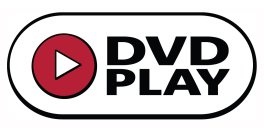 Chuck Berger, chairman and CEO of number 3 DVD rental kiosk operator DVDPlay, believes that within 3 years kiosks will have captured 25% of the rental market. He says right now kiosks have around a 2% share, although Blockbuster estimates indicate the figure is more than 3%.
Chuck Berger, chairman and CEO of number 3 DVD rental kiosk operator DVDPlay, believes that within 3 years kiosks will have captured 25% of the rental market. He says right now kiosks have around a 2% share, although Blockbuster estimates indicate the figure is more than 3%.
Redbox, the leading kiosk rental company, currently has units in more than 4,000 locations. Their success is largely due to getting prominent placement outside McDonald's restaraunts.
And that's the realy appeal of kiosks to many retailers. While a DVD rental operation might be prohibitively expensive in terms of inventory, store space, and payroll, a kiosk has none of those issues. It takes up little space, can hold hundreds of DVDs, and doesn't require an employee to operate.
Berger expects kiosks to chip away at brick and mortar business, which has already been hit hard by competition from online rental pioneer Netflix. He said “The person we’re going to attract is the person who is not motivated to go out of their way to rent a DVD—or to take back a DVD.”
Source: Video Business
Written by Rich Fiscus @ 17 Nov 2007 5:51
 With the Writers Guild of America (WGA) on strike, studios are being forced to rethink what will be included in box sets for television series being affected. Despite the fact many shows may have shorter seasons that usual, and there may not even be as many special features to include, studios have no intention of changing release schedules.
With the Writers Guild of America (WGA) on strike, studios are being forced to rethink what will be included in box sets for television series being affected. Despite the fact many shows may have shorter seasons that usual, and there may not even be as many special features to include, studios have no intention of changing release schedules.
The reasoning is simple. Most TV show releases happen in the summer, timed for maximum marketing effect, and intended partly as a warmup for the upcoming season to be broadcast. This period is also typically when TV ratings are low as people spend more time outside the house, and re-runs rule the U.S. television landscape.
“We are in the process of figuring out our options right now,” said one studio source. “I don’t think it would be a surprise to see us release truncated seasons. It would still [represent] a full season but just shorter than what was originally planned.”
Some retailers are even taking this as good news. Virgin Megastores senior category manager Chris Anstey said. “Many TV shows could easily stand to have its seasons broken out into two parts, particularly network shows that [normally] have over 20 episodes. It’s not the perfect scenario, particularly with serialized shows that work better as complete series sets, but it’s a short-term remedy in keeping sales strong if the strike persists.”
Read more...
Written by Rich Fiscus @ 16 Nov 2007 6:58
 Even though retailers are planning big deals on HDTVs for next Thursday's annual "Black Friday" sales. Even though it looks like digital televisions will be in more than half of all U.S. households by the time Christmas comes this year, that's not necessarily a sign that manufacturers or programmers are getting their message out to consumers.
Even though retailers are planning big deals on HDTVs for next Thursday's annual "Black Friday" sales. Even though it looks like digital televisions will be in more than half of all U.S. households by the time Christmas comes this year, that's not necessarily a sign that manufacturers or programmers are getting their message out to consumers.
Despite ever increasing hi-def programming available from cable and satellite providers, according to the Consumer Electronics Association (CEA) most HDTV purchases are actually intended for watching SD content in the form of DVDs.
While many industry experts have speculated that the disconnect between manufacturers/content providers and consumers is all about fine distinctions between several formats, others believe the issue is a general lack of understanding about what hi-def actually is.
For many consumers, the improved picture quality of DVD equates to a higher definition signal. That's easy to understand given that most people adopted DVD after many years of experience with VHS and similar formats that don't even take advantage of the quality available in standard analog televisions.
Read more...
Written by Rich Fiscus @ 16 Nov 2007 12:49
 A new Hollywood venture called Blowtorch has raised $50 million to supply eight movies, either original or purchased, that will include elements requiring viewers to have their mobile phones on.
A new Hollywood venture called Blowtorch has raised $50 million to supply eight movies, either original or purchased, that will include elements requiring viewers to have their mobile phones on.
The first feature produced for Blowtorch will be produced by the company's chief executive, Paul Schiff. Schiff is an established producer with credits on films including Rushmore, Date Movie, and PCU. The company is aiming for a release date in April of next year. "What we do contemplate is to give our audience the ability to be involved," Schiff told Reuters. "Our audience is fragmented and less reliable, harder to find."
Digital advertising executive Kelly Rodriqes, co-founder of the company, said "We want to create a hybrid of a content distribution or media business with ... a place where opinions are valued." He added "We ask you to turn your phone on. We want to encourage you to potentially communicate with people in the theater."
Rodriquez mentioned possibilities for interaction with the audience before and during production, as well as directly in the theater where viewers could offer feedback without leaving the theater.
Source: Reuters
Written by Rich Fiscus @ 16 Nov 2007 10:57
 Walgreens drug stores in Columbus, Ohio and the Phoenix, Arizona metropolitan area will have Redbox DVD rental kiosks installed. This follows limited market testing in the Chicago and Houston areas which began in the last half of 2006.
Walgreens drug stores in Columbus, Ohio and the Phoenix, Arizona metropolitan area will have Redbox DVD rental kiosks installed. This follows limited market testing in the Chicago and Houston areas which began in the last half of 2006.
"Walgreens has a proud history of offering some of the most innovative products and services in the drugstore industry, and our Chicago and Houston-area customers have embraced Redbox's $1 per night price point and quick, self-service transaction," Walgreens divisional merchandise manager for electronics Robin Randolph said. "We're excited to provide our Columbus and Phoenix customers with this added convenience and look forward to their feedback on the service."
For retailers like Walgreens the kiosks make it possible to provide a movie rental service without the cost of inventory, floor space, and additional employees. While Redbox kiosks don't contain the selection of a traditional rental outlet, for people who are only looking for popular new releases they can be a convenient substitute. They've already proven successful at McDonald's restaraunts across the United U.S..
Read more...
Written by Rich Fiscus @ 16 Nov 2007 10:23
 Even though Writer's Guild of America (WGA) members don't have access to the major media outlets many work for they're still finding an audience for their message on YouTube.
Even though Writer's Guild of America (WGA) members don't have access to the major media outlets many work for they're still finding an audience for their message on YouTube.
A video starring a striking writer for the Daily Show pokes fun at Viacom, the company which owns the Daily Show and is currently suing YouTube for $1 billion because the claim the site didn't do enough to stop piracy of their content.
In the video Daily Show writer Jason Ross presents the dispute between the WGA and studios in a satirical form familiar to the show's viewers. However, there are serious issues being raised. The central point is the disconnect between studio claims to investors, and in Viacom's case to the court, about the value of delivering their content online. It appears that when trying to fire up shareholders or sue viral video sites studios claim the property is already valued in the billions, but when it comes time to pay royalties it's worth nothing because they're operating at a loss.
Included in the video was a clip of Viacom CEO Sumner Redstone arguing that if a company filed a suit against YouTube they might "expect a deal that reflected the value of their content." His comments made no mention of factoring in the studio's current ability to turn a profit from it.
Read more...
Written by Rich Fiscus @ 16 Nov 2007 9:26
 Up and coming music label Downtown Records has teamed with Engadget co-founder Peter Rojas to launch an new online label called RCRD LBL that will offer free MP3's. Each release will be paid for by corporate sponsors.
Up and coming music label Downtown Records has teamed with Engadget co-founder Peter Rojas to launch an new online label called RCRD LBL that will offer free MP3's. Each release will be paid for by corporate sponsors.
The online venture is affiliated with a number of independent labels including not only Downtown Records, but also Warp Records, Ghostly Intl., Modular Records, and Drowned in Sound. While some recordings will be promotional offerings from those labels, others will be recorded specifically for RCRD LBL. So far Puma, the Virgin America airline, and Nikon have been signed as sponsors.
In order to enable integration of sponsor content directly with their own, the RCRD LBL website is built from a number of widgets. Each widget can be customized with a sort of miniature banner ad.
Artists are given advances ranging from $500 to $5,000, depending on how well established they are.
Sources:
Wired
Variety
Written by Rich Fiscus @ 15 Nov 2007 6:09
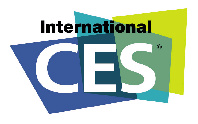 Sony Pictures Television and NBC Universal both plan to have a major presence at next January's Consumer Electronics Show (CES).
Sony Pictures Television and NBC Universal both plan to have a major presence at next January's Consumer Electronics Show (CES).
Gary Shapirso, President and CEO of the Consumer Electronics Association which produces the show annually, was joined by Sony Pictures Television President Steve Mosko at the press preview of the show. He said Sony “is excited to come to CES as a technology company and as a content company. It fits in with our corporate theme of ‘Sony United.’” Sony, of course, is best known for their consumer electronics products, and are the most visible and vocal Blu-ray proponent among hardware manufacturers.
Over the last few years CES has become a crucial place for content owners to meet with electronics manufacturers to discuss issues relevant to both sides, ranging from new technology for content delivery to DRM for that content.
Next year's event will feature NBC as the "Official Broadcast Partner" of the show, and will broadcast several shows from the event. They'll also be covering some CES events during those broadcasts. Several addresses and workshops at the show will focus on how existing and future technology can be used to deliver media to customers.
Read more...
Written by Rich Fiscus @ 15 Nov 2007 6:01
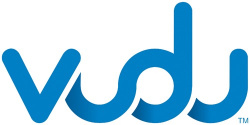 Vudu, a video download service that uses a combination of P2P software and a proprietary settop box, announced that hi-def movies are going to be available soon. According to a company representative, this will make Vudu one of only two services (Xbox Live is the other) to make major studio releases available in hi-def via download.
Vudu, a video download service that uses a combination of P2P software and a proprietary settop box, announced that hi-def movies are going to be available soon. According to a company representative, this will make Vudu one of only two services (Xbox Live is the other) to make major studio releases available in hi-def via download.
"We're pleased to expand our partnership with Vudu to include digital distribution of our films in [high-def]," said Thomas Lesinski, president of Paramount Pictures Digital Entertainment. "Vudu is rewriting the rules with its superb user interface and ease of use. Consumers will find watching our movies in [high-def] on Vudu to be a great experience."
Besides its content, which currently includes more than 5,000 titles from both major and indpendent studios, Vudu is notable for the way files are distributed. Unlike a traditional client/server system where all files would be downloaded from a central server operated by the provider, Vudu uses P2P technology to distribute files that are rented or purchased from their site.
Lionsgate president and chief operating officer Steve Beeks called the partnership with Vudu "another opportunity to monetize our content in the digital marketplace of the future."
Read more...
Written by Rich Fiscus @ 12 Nov 2007 10:55
 According to a report from Global Media Intelligence, a division of media analysis firm Screen Digest, rising costs and falling revenue will cause studios to lose $1.9 billion on movies originally released in 2006. The report compares 2006 releases to those just two years earlier in 2004. Releases from that year reportedly earned profits of $2.2 billion.
According to a report from Global Media Intelligence, a division of media analysis firm Screen Digest, rising costs and falling revenue will cause studios to lose $1.9 billion on movies originally released in 2006. The report compares 2006 releases to those just two years earlier in 2004. Releases from that year reportedly earned profits of $2.2 billion.
So what's being blamed for turning profits into losses? The report points to the current trend toward lower DVD sales with no alternative revenue stream replacing those dollars. While studios are actively pursuing other revenue streams like Video on Demand (VoD) to make up for lower DVD returns, based on the report they're not meeting with much success so far.
"Some executives in the Hollywood studios are looking to the new technologies of video-on-demand and subscription-based TV to fill the gap left by DVD. However, GMI estimates that while vod will offer a superior share of the consumer dollar over traditional pay channels (60% versus 40%), it will not deliver at the lofty levels predicted in the early days of the industry and will not help the studios put old wine in new bottles," said Roger Smith, author of the report.
Read more...
Written by Rich Fiscus @ 12 Nov 2007 12:34
 The band Radiohead made their latest album available from their website in October. Instead of selling the album In Rainbows outright, the band allows purchasers to decide what they were worth, including the option to pay nothing.
The band Radiohead made their latest album available from their website in October. Instead of selling the album In Rainbows outright, the band allows purchasers to decide what they were worth, including the option to pay nothing.
The move has been criticized recently based on an estimate from industry analysts at comScore that 60% of downloaders didn't pay anything. After comScore's report was released on November 5th the band released a statement calling the firm's figures "purely speculative" and "wholly inaccurate." The statement went on to say "the group's representatives would like to remind people that, as the album could only be downloaded from the band's website, it is impossible for outside organisations to have accurate figures on sales." However the band hasn't released any actual numbers.
Recording industry executives apparently aren't particularly impressed with comScore's numbers either. In his blog Warner Brothers Records Head of Technology Ethan Kaplan asked "In what world does a “few out of a hundred” translate to “Most”??????." He was referring to the sample size used for comScore's calculations, which consisted of fewer than 1000 people who downloaded the album. He was also critical of press reports, asking "Can someone answer to me how mainstream journalism has survived this long?"
Read more...
Written by Rich Fiscus @ 11 Nov 2007 10:59
 U.K. online music store 7Digital has released figures indicating that consumers are showing their preference for DRM free music by purchasing four times as much of it as they do tracks with DRM. This could be big news for a recording industry reeling from increasingly lower sales number for their format of choice, the Compact Disc,
U.K. online music store 7Digital has released figures indicating that consumers are showing their preference for DRM free music by purchasing four times as much of it as they do tracks with DRM. This could be big news for a recording industry reeling from increasingly lower sales number for their format of choice, the Compact Disc,
7Digital's numbers don't stop with analyzing DRM preferences though. The good news for audiophiles is that the public is also showing a preference for higher quality. Specifically they're seeing strong sales of MP3's encoded at 320kbps. Although this is still lower quality than a CD, let alone what's possible with formats like HD DVD or Blu-ray, it's an improvement over 128kbps files.
“Consumers are a lot savvier than some people think and overwhelmingly choose MP3 over any other format when given the choice. MP3 is the only truly interoperable format that works with the iPod, most mobile phones (including the iPhone) and all MP3 players," said Ben Drury of 7digital.com.
Read more...
Written by Rich Fiscus @ 11 Nov 2007 10:56
 PBS, the Public Broadcasting Service which provides educational programming throughout the United States, hopes to take advantage of the popularity of shows like Nova and History Detectives on iTunes by selling them through both the BitTorrent and Vuze online stores.
PBS, the Public Broadcasting Service which provides educational programming throughout the United States, hopes to take advantage of the popularity of shows like Nova and History Detectives on iTunes by selling them through both the BitTorrent and Vuze online stores.
“As of last week, PBS had two of the top 100 podcasts on iTunes, Wired Science and Bill Moyers Journal," PBS spokesman Kevin Dando said. "The PBS audience seems to like this kind of access.”
Meanwhile BitTorrent is quietly becoming a major player in multimedia delivery over the internet, which shouldn't be particularly surprising. After all, for years various industry experts have suggested that P2P technology is key to delivering the amount of data involved in high quality multimedia downloads and Streaming. Since launching their download service BitTorrent has developed a high enough profile for some in the P2P community to look for alternatives to the company's famous filesharing protocol.
By getting popular content that's also available on iTunes, other services have an opportunity to be major players in video downloads when it eventually takes off.
Read more...
Written by Rich Fiscus @ 10 Nov 2007 4:09
 U.S. lawmakers are once again trying to get the Department of Justice to take up the case of corporate copyright holders. It seems that Senators Patrick Leahy and John Cornyn apparently are concerned that big corporations don't get enough copyright protection from the law, and feel it's in the country's best interest to assign FBI agents and U.S. Department of Justice (DOJ) prosecutors to handle civil litigation for them.
U.S. lawmakers are once again trying to get the Department of Justice to take up the case of corporate copyright holders. It seems that Senators Patrick Leahy and John Cornyn apparently are concerned that big corporations don't get enough copyright protection from the law, and feel it's in the country's best interest to assign FBI agents and U.S. Department of Justice (DOJ) prosecutors to handle civil litigation for them.
The new bill sponsored by the two Senators is similar to one that's been approved by the Senate 3 times since 2004, and which has been a target for a great deal of criticism from conumer rights groups. The bill would create a special team of FBI agents to investigate copyright infringement cases, as well as allowing for forfeiture of "any property used, or intended to be used, in any manner or part to commit or facilitate the commission" of certain intellectual property offenses.
In the past, Leahy has said that supports the so-called Pirate Act because "Federal prosecutors have been hindered in their pursuit of pirates by the fact that they were Limited to bringing criminal charges with high burdens of proof." In other words, he doesn't want Federal prosecuters hindered by that pesky "reasonable doubt" provision in U.S. criminal law, and would like them to start operating under the much loser "preponderance of evidence," which only requires that juries in civil cases be reasonably sure of their conclusions.
Read more...
Written by Rich Fiscus @ 10 Nov 2007 3:35
 Earlier this week Blockbuster CEO Jim Keyes announced a new focus for the company. Ironically, the new focus is on the company's old brick and mortar rentail business.
Earlier this week Blockbuster CEO Jim Keyes announced a new focus for the company. Ironically, the new focus is on the company's old brick and mortar rentail business.
Keyes spoke about the company's Total Access plan, which this year made Blockbuster the first company to ever seriously compete with Netflix in online rentals. "The concept of Total Access—brilliant. The execution of Total Access left a little to be desired," Keyes said. He was referring to the fact that despite being a success in terms of attracting subscribers, so far the program has failed to turn a profit. In fact, according to Keyes the program has cannibalized Blockbuster's in-store customer base.
"We've decided that instead of a horizontal shift [to mail], we think there might be more of a vertical opportunity to move customers across channels so that store customers don't have to only move to digital or by mail," he said. "The ability to transform these customers and allow them to have different use occasions and sources of access, we think is a more relative model for us and will be the more likely migration path over the next few years."
One of the methods Blockbuster intends to use for their digital delivery plans is the newly acquired Movielink download service. Blockbuster bought Movielink earlier this year in an apparent attempt to compete with the Watch Instantly feature debuted by Netflix earlier this year. The purchase gives Blockbuster access to what Keyes calls the "largest amount of digital title rights in the marketplace today."
Read more...
Written by Rich Fiscus @ 09 Nov 2007 10:29
 Visitors to BitTorrent Tracker site Demonoid.com over the last several hours have been greeted by the following message:
Visitors to BitTorrent Tracker site Demonoid.com over the last several hours have been greeted by the following message:
"The CRIA threatened the company renting the servers to us, and because of this it is not possible to keep the site online. Sorry for the inconvenience and thanks for your understanding."
In September the site was forced to move its servers to Canada from The Netherlands, where they were under attack from Dutch copyright enfocement agency BREIN. Since that time, the Canadian equivalent to the RIAA, the Canadian Recording Industry Association (CRIA) has been working to have the servers shut down. In September the site was down for a week, and when they returned they no longer accepted connections from Canadian users.
Source: Demonoid
Written by Rich Fiscus @ 08 Nov 2007 10:18
 Wednesday morning at the Media and Money conference, former Disney CEO Michael Eisner pronounced the Writers Guild of America (WGA) strike that began Monday stupid. Specifically, he said "I see stupid strikes, and I see less stupid strikes. I see smart strikes," adding that "This is a stupid strike."
Wednesday morning at the Media and Money conference, former Disney CEO Michael Eisner pronounced the Writers Guild of America (WGA) strike that began Monday stupid. Specifically, he said "I see stupid strikes, and I see less stupid strikes. I see smart strikes," adding that "This is a stupid strike."
His argument is simple. Studios aren't making money from online distribution so neither should the writers. However, that logic doesn't hold up very well to scrutiny. Unlike the studios, writers don't finance television shows or movies. Both the risk and reward go primarily to studios and networks. Also, it seems unlikely that actors or directors would be incliined to reduce their pay simply because the studio hasn't established a good revenue stream from internet delivery. The writers just happen to rely more heavily on royalties than others in Hollywood, so it makes them an easier target.
However, he's also critical of studios that he says have hyped the success of internet delivery to the point where most people think they're more profitable than they really are. He said "It's a double-edged sword. The studios deserve what they're getting, because they've been announcing how great (the Internet) is. But then they open their books."
Read more...
Written by Rich Fiscus @ 08 Nov 2007 9:33
 Hollywood is still unsure how to make money from digital content. At least that's the message a panel of experts that included representatives from Google and NBC Universal at a New York conference on Tuesday.
Hollywood is still unsure how to make money from digital content. At least that's the message a panel of experts that included representatives from Google and NBC Universal at a New York conference on Tuesday.
"When you take a show like "Heroes" or "The Office," that show ran once 30 years ago," said Ron Lamprecht, senior vice president, digital distribution, at NBC Universal. "Just in the past couple of years, so many new choices for consumption have developed on so many platforms," he said, pointing to Hulu, an online video service formed by NBC Universal and Fox owner News Corp. "Hulu is a big bet for NBCU and News Corp," he said. "Our play for video outside of NBC.com is Hulu and the launch partners in Hulu." Those partners include MGM and Sony Pictures Television.
Despite the interest in new ways to deliver video, they're not giving up on television as a medium yet. "Broadcast television is still very powerful, it's still the only way to do certain things," Laprecht said. "I think there is always going to be a place for consuming a TV show or movie in a certain environment," like a movie theater or a living room.
Read more...
Written by Rich Fiscus @ 08 Nov 2007 12:44
 Despite the usual rhetoric claiming huge losses due to piracy, both Time Warner (Warner Brothers) and News Corp. (Fox) have announced substantial revenue growth in both theatrical and home entertainment divisions.
Despite the usual rhetoric claiming huge losses due to piracy, both Time Warner (Warner Brothers) and News Corp. (Fox) have announced substantial revenue growth in both theatrical and home entertainment divisions.
Hot summer films like Harry Potter and the Order of the Phoenix and Ocean’s 13, as well as a strong showing from the DVD release of 300 contributed to a 33% increase for Time Warner's filmed entertainment division. Meanwhile News Corp.'s Film Entertainment Division saw a 51% increase over last year off the strength of hits including The Simpsons Movie and Live Free or Die Hard.
Television network performance for the two companies was mixed. Time Warner's TNT network bosts the most viewed original series on an ad supported cable network (The Closer) and an annual increase of 6% in ad revenue. Revenue increases from News Corp.'s cable offerings were offset slightly by losses in broadcast television, but were still substantial.
These increases are coming during a period when film and television executives are investing in new delivery methods like corporate websites, online sales (downloads), and third party Streaming services like Joost. At the same time they're still making money from traditional audiences.
Read more...
Written by Rich Fiscus @ 08 Nov 2007 12:12
 Apparently motivated by BitTorrent's high profile dealings with content owners, Peter Sunde, co-founder of The Pirate Bay, says the site is working to develop a new P2P protocol. Sunde said in an interview, "If they go and do something stupid, it will affect a lot of people." The Pirate Bay gets around 1.5 million visitors each day.
Apparently motivated by BitTorrent's high profile dealings with content owners, Peter Sunde, co-founder of The Pirate Bay, says the site is working to develop a new P2P protocol. Sunde said in an interview, "If they go and do something stupid, it will affect a lot of people." The Pirate Bay gets around 1.5 million visitors each day.
For his part, BitTorrent president Ashwin Navin isn't losing any sleep over the site's planned switch. "We are not really disappointed here," he told Reuters. "The pirate community has never paid us a dime." Last month BitTorrent launched a new media distribution service that Navin hopes will increase the overall number of people using the company's self-named P2P protocol by more than 5 times. They already have Brightcove, which distrubutes video for prominent clients including CBS, Fox Entertainment, and Viacom as a client. Deals like those are what worry Sunde.
At least one industry observer, Eric Garland, CEO of BigChampagne, isn't surprised by The Pirate Bay's apparent distrust of BitTorrent's corporate ties. "Future development (of the BitTorrent software) will almost certainly be focused on things that do not benefit or further the aims of the pirate," Garland said.
Read more...
Written by Rich Fiscus @ 07 Nov 2007 11:49
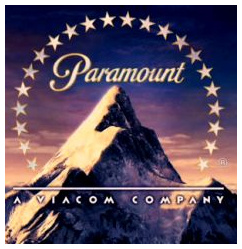 Paramount is joining rival Warner Bros. in offering heavily discounted DVDs to Chinese consumers through Warner's established channels in an attempt to combat rampant piracy in that country. They're hoping that despite costing at least twice as much as a pirated copy, the DVDs will sell because people would rather buy legitimate goods.
Paramount is joining rival Warner Bros. in offering heavily discounted DVDs to Chinese consumers through Warner's established channels in an attempt to combat rampant piracy in that country. They're hoping that despite costing at least twice as much as a pirated copy, the DVDs will sell because people would rather buy legitimate goods.
Last year Time Warner, corporate parent of Warner Brothers, set up Warner China with China Film Group and Hengdian Group to sell movies for prices equivalent to around $1.50 just a few days after they're released in theaters. Since then Fox has also made plans for similar Chinese releases, but with prices closer to $3 per disc, which is also what Paramount plans to sell their DVDs for. As Fox's international home-entertainment manager Keith Feldman said last November, "It comes down to our ability as marketers to convince the Chinese consumer it's worth spending the money."
"We're committed to developing a legitimate market in China, and having two more Hollywood studios gives us more critical mass," Warner Bros. managing director of China distribution, Tony Vaughan, said in a news conference.
Read more...
Written by Rich Fiscus @ 07 Nov 2007 11:47
 Despite assurances from company spokesmen that all is going according to plan for Sony's gaming division, the company is apparently considering getting out of the gaming CPU business entirely.
Despite assurances from company spokesmen that all is going according to plan for Sony's gaming division, the company is apparently considering getting out of the gaming CPU business entirely.
In September Sony announced that they would be selling the manufacturing facility where PS3 CPUs are built to Toshiba, but indicated that they intended to remain involved in related research with partners Toshiba and IBM. Plans currently under consideration would have them withdrawing completely from the alliance responsible for creation of the PS3's Cell processor.
Sony spokesman Tomio Takizawa said the company "is in talks with IBM and Toshiba to review the project." He added "Given the sale plan, it would be unreasonable for us to continue research on manufacturing technologies."
Source: Yahoo News
Written by Rich Fiscus @ 07 Nov 2007 10:19
 CinemaNow has licensed Sonic's new Qflix software, which will allow movies downloaded from the online video service to be burned with CSS encryption on home computers. CinemaNow hopes to have CSS encrypted burning available some time in the second quarter of 2008. Some CinemaNow titles to be burned to DVD using a copy protection system based on fluxDVD (aka RatDVD). However, since not all standalone DVD players can play fluxDVD protected content, the standard hasn't been widely adopted by content owners.
CinemaNow has licensed Sonic's new Qflix software, which will allow movies downloaded from the online video service to be burned with CSS encryption on home computers. CinemaNow hopes to have CSS encrypted burning available some time in the second quarter of 2008. Some CinemaNow titles to be burned to DVD using a copy protection system based on fluxDVD (aka RatDVD). However, since not all standalone DVD players can play fluxDVD protected content, the standard hasn't been widely adopted by content owners.
“Our strategy over the past year has been to stop beating our heads against the wall on delivering content to the PC and to concentrate on embedding CinemaNow into as many devices and platforms as possible,” Marvis said. “We’re trying to build an ingredient brand, where CinemaNow is an embedded ingredient to how people access entertainment, whether in the home or on a portable device.”
“The online video distribution industry will get a massive shot in the arm with the ability to burn downloaded video to DVD with the same protection and ubiquitous playability of packaged DVDs,” Sonic Solutions senior VP Jim Taylor said. “We are confident that our partnership with CinemaNow will fuel the burn-to-DVD business and provide content owners with a new, valuable distribution platform.”
Read more...
Written by Rich Fiscus @ 06 Nov 2007 2:51
 Oregon Attorney General Hardy Myers is getting the state's Department of Justice involved in the RIAA's campaign to identify file sharers on college campuses. The RIAA has issued a subpoena to learn the identities of 17 people allegedly sharing files illegally from the University of Oregon campus.
Oregon Attorney General Hardy Myers is getting the state's Department of Justice involved in the RIAA's campaign to identify file sharers on college campuses. The RIAA has issued a subpoena to learn the identities of 17 people allegedly sharing files illegally from the University of Oregon campus.
A motion filed by Myers claims that because the RIAA is providing nothing more than IP addresses, it's impossible to positively identify the person sitting at the computer. Myers argues that complying with the RIAA subpoena would require the University to conduct an extensive investigation to determine who was actually using each computer at the time the alleged copyright violations took place.
Stephanie Soden, a spokeswoman at the Department of Justice in Oregon, said "It really is quite burdensome. [The RIAA is] using a broader and blunter tool than necessary and the university feels it doesn't want to spend the resources needed to comply."
An RIAA spokesman said "This is not the first attempt to quash a subpoena, nor do we expect it to be the last. In the handful of instances where this has occurred, the courts have overwhelmingly ruled in favor of the record companies."
Read more...
Written by Rich Fiscus @ 06 Nov 2007 2:11
 AT&T has lowered their forecast for the number of homes that will have their U-verse IPTV service available by the end of 2008 to 17 million. This is down from an estimate of 19 million made as recently as May.
AT&T has lowered their forecast for the number of homes that will have their U-verse IPTV service available by the end of 2008 to 17 million. This is down from an estimate of 19 million made as recently as May.
The success of U-verse may be key to the long term survival of the telecommunications company. Competition from cable companies for traditional voice customers has forced them to look for a replacement revenue stream, but so far establishing the service hasn't gone as smoothly as planned.
Just last month they suffered a setback when they were unable to obtain a statewide franchise in Connecticut to bypass local government demands for franchise agreements. This followed a July Federal Court ruling that U-verse is subject to cable television regulations.
Source: Associated Press
Written by Rich Fiscus @ 06 Nov 2007 11:13
 Macrovision has patched a security hole in a driver file used for their SafeDisc CD/DVD copy protection system. According to security experts the software flaw could allow an attacker to completely take over an affected Windows XP or Server 2003 computer. A Microsoft security advisory indicates that Vista is immune to the problem.
Macrovision has patched a security hole in a driver file used for their SafeDisc CD/DVD copy protection system. According to security experts the software flaw could allow an attacker to completely take over an affected Windows XP or Server 2003 computer. A Microsoft security advisory indicates that Vista is immune to the problem.
Despite the level of access this could give an attacker, it requires the attacker to be at (or at least logged into) the computer. Microsoft says customers have reported "limited attacks."
Symantec reported two weeks ago in a security advisory that an enterprise security testing tool called Core Impact had a functional exploit. You can download a patch to fix the driver file (SecDrv.sys) from Macrovision.
Source: eWeek
Written by Rich Fiscus @ 06 Nov 2007 10:40
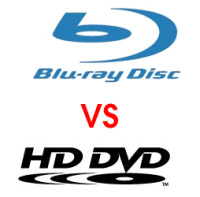 Last week, at the Blu-ray Disc Festival in Los Angeles, 20th Century Fox president Mike Dunn took shots at a company he characterized as an 800 pound gorilla looking for customer confusion to spark online media sales. It was a thinly veiled reference to HD DVD supporter Microsoft, and later in the week a Microsoft representative responded, saying “The [Blu-ray] camp’s claims about Microsoft’s desire to have a format war are baseless.” Kevin Collins, director in the Microsoft Consumer Media Technology Group said ”Microsoft has over 100 people working on HD DVD interactivity and we believe that HD DVD is the next-generation optical format.”
Last week, at the Blu-ray Disc Festival in Los Angeles, 20th Century Fox president Mike Dunn took shots at a company he characterized as an 800 pound gorilla looking for customer confusion to spark online media sales. It was a thinly veiled reference to HD DVD supporter Microsoft, and later in the week a Microsoft representative responded, saying “The [Blu-ray] camp’s claims about Microsoft’s desire to have a format war are baseless.” Kevin Collins, director in the Microsoft Consumer Media Technology Group said ”Microsoft has over 100 people working on HD DVD interactivity and we believe that HD DVD is the next-generation optical format.”
Collins said the company's decision to back HD DVD was a result of purely pragmatic concerns such as lower disc manufacturing costs and mandated managed copying, which is supposed to make it possible to exercise some fair use rights without compromising DRM concerns. On the subject of copying, he said “AACS today is rapidly approaching the ‘final agreement’ that will start to make this available for customers, though I do not have a firm timeline on this.” He added, “The key fact is that Microsoft believed that a next-generation format should be ‘consumer friendly’ and at the time of the decision, only HD DVD supported this.”
Read more...
Written by Rich Fiscus @ 05 Nov 2007 7:00
 Today AfterDawn kicks off a series of guides intended to help you navigate through the maze of hi-def technology. The first two guides cover general high definition signals and HDTV technology. Future guides in the series will include more details on basic technology, as well as instructions for basic Authoring and playback on computers and standalone players.
Today AfterDawn kicks off a series of guides intended to help you navigate through the maze of hi-def technology. The first two guides cover general high definition signals and HDTV technology. Future guides in the series will include more details on basic technology, as well as instructions for basic Authoring and playback on computers and standalone players.
High Definition Signals
HDTV Essentials
You can find these, and other guides in our Guides section.
Written by Rich Fiscus @ 05 Nov 2007 6:49
 Samsung has decided to drop plans for a mid-tier Blu-ray standalone that would have been priced somewhere in between the $499 BD-P1400 and $999 BD-UP5000.
Samsung has decided to drop plans for a mid-tier Blu-ray standalone that would have been priced somewhere in between the $499 BD-P1400 and $999 BD-UP5000.
"Samsung assessed its product lineup and after discussions with our channel partners, decided to focus on the BD-P1400 and the BD-UP5000 to make its next-generation offerings more efficient," according to a Samsung statement. "As a result, the BD-P2400 was removed from the 2007 holiday lineup."
The BD-UP5000, Samsung's first combination HD DVD and Blu-ray player, should be available to consumers in mid-December, and will be BD profile 1.1 compliant like all players released from this point forward.
Source: This Week In Consumer Electronics
Written by Rich Fiscus @ 05 Nov 2007 6:24
 Phillips has begun offering television buyers a new service plan that included "lifetime technical support, next-day scheduling of in-home repairs and a simplified exchange program for those living in areas without authorized service support." The program, which is called Philips Simplicity Advantage, was designed to "bring the same level of service to consumers that is already present in Philips technology," the company said. It's available only for flat panel HDTVs 37" or larger.
Phillips has begun offering television buyers a new service plan that included "lifetime technical support, next-day scheduling of in-home repairs and a simplified exchange program for those living in areas without authorized service support." The program, which is called Philips Simplicity Advantage, was designed to "bring the same level of service to consumers that is already present in Philips technology," the company said. It's available only for flat panel HDTVs 37" or larger.
The move is intended as a way for Phillips to differentiate themselves from value brands that are offering stiff competition for traditional consumer electronics manufacturers. Over the past several months, upstart Vizio has stunned the retail world by dominating flat panel TV sales for one quarter and coming in second the next.
Surveys have indicated that one major issue for consumers when considering electronics purchases is the level of support offered by the manufacturer.
Source: This Week In Consumer Electronics
Written by Rich Fiscus @ 05 Nov 2007 10:51
 Canadian ISP Bell Sympatico admitted using limiting bandwidth to P2P applications during peak usage hours. The admission comes after major U.S. broadband (cable) internet provider Comcast was forced to admit delaying some packets from P2P uploads, as well as those from some other applications such as Lotus Notes.
Canadian ISP Bell Sympatico admitted using limiting bandwidth to P2P applications during peak usage hours. The admission comes after major U.S. broadband (cable) internet provider Comcast was forced to admit delaying some packets from P2P uploads, as well as those from some other applications such as Lotus Notes.
So why all the uproar over bandwidth "throttling" by providers? While it's true that piracy occurs over such networks, there's also legitimate traffic like downloads for legal software (like Linux OS disc images) and legal video and audio. In fact, taking the current bandwidth availability into account, P2P technology is emerging as a likely framework for delivering music, movies, and television across the internet both for downloads and streaming.
Many consumers are frustrated by what they see as deceptive marketing by broadband providers who often market their high speed services' multimedia capabillities but don't necessarily deliver. The Federal Communications Commision is also being criticized for a relatively hands-off approach to these providers. Last week a group of Net Neutrality activists filed a complaint against Comcast, claiming the company's "network management," which renders some applications nearly useless, violates FCC principles stated in the agency's official Internet Policy Statement. There are also calls in Congress for revisiting Net Neutrality legislation.
Read more...
Written by Rich Fiscus @ 05 Nov 2007 10:01
 Disney owned ESPN has entered into an agreement with Microsoft to provide content for the company's Xbox Live download service. "Establishing this relationship with Microsoft on Xbox 360 provides an innovative way to reach our target demographic," said Matt Murphy, senior veep of digital video distribution for Disney and ESPN Media Networks.
Disney owned ESPN has entered into an agreement with Microsoft to provide content for the company's Xbox Live download service. "Establishing this relationship with Microsoft on Xbox 360 provides an innovative way to reach our target demographic," said Matt Murphy, senior veep of digital video distribution for Disney and ESPN Media Networks.
Series like the cable network's coverage of The World Series of Poker and video game oriented reality show Madden Nation will be offered, as well as coverage of ESPN's annual Xbox Summer Games. The same programming is already being sold on iTunes.
"This is only the second deal ESPN has done regarding electronic sell-through, and we think it's a fantastic match for our platform and our consumer base, many of whom are avid sports fans," said Ross Honey, senior director of the media and entertainment group at Microsoft. "At the end of the day, most of our consumers are young males," Honey said. "You have a perfect match here."
Sources:
Variety
Reuters
Associated Press
Written by Rich Fiscus @ 05 Nov 2007 9:36
 Microsoft has inked a deal with India's Reliance Communications to provide their Mediaroom platform for a new IPTV venture in that country.
Microsoft has inked a deal with India's Reliance Communications to provide their Mediaroom platform for a new IPTV venture in that country.
According to Microsoft CEO Steve Ballmer the Reliance service is different than offerings in Western countries because it's intended to be a mass market product, rather than targeting more affluent customers. "This partnership is unique because of the scale of development. We are moving further and faster than anywhere in the world ... further and further down the economic chain," Ballmer said.
Reliance Communication is a major player in India's quickly expanding mobile phone market. They're hoping to take advantage of India's estimated 100 million households with televisions, which is experiencing phenomenal growth of 20% - 25% annually as the country's economy booms.
Over the last year Microsoft has made a major marketing push, hoping to get Mediaroom established as a major player in the emerging IPTV market.
Sources:
Associated Press
Written by Rich Fiscus @ 03 Nov 2007 7:44
 According to a complaint filed with the Federal Communication Commission by members of the SavetheInternet.com coalition, a group of Net Neutrality proponents, as well as academics from Harvard, Yale, and Stanford law schools, Comcast is violating the FCC's Internet Policy Statement. That statement says, among other things that "consumers are entitled to access the lawful Internet content of
According to a complaint filed with the Federal Communication Commission by members of the SavetheInternet.com coalition, a group of Net Neutrality proponents, as well as academics from Harvard, Yale, and Stanford law schools, Comcast is violating the FCC's Internet Policy Statement. That statement says, among other things that "consumers are entitled to access the lawful Internet content of
their choice."
The complaint stems from recent controversy over Comcast's handling of certain traffic, which includes delaying traffic from some applications long enough to stop those programs from working properly. So far Comcast's response to criticism about the problem has been to characterize it as "network management," and repeatedly point out that they're not Blocking any application," apparently responding to an allegation that no one has made against them.
But the groups filing the petition say, "No plausible technical or economic reason suggests that blocking particular applications is a reasonable way to manage a network." They're asking the FCC to clarify the Internet Policy statement to explicitly say "intentionally degrading an application or class of applications is not 'reasonable network management' under the FCC policy statement."
Read more...
Written by Rich Fiscus @ 03 Nov 2007 6:12
 Although more than 200,000 Xbox 360 HD DVD drives had been sold through the end of September, Microsoft doesn't have any plans to integrate it as a core component of the console.
Although more than 200,000 Xbox 360 HD DVD drives had been sold through the end of September, Microsoft doesn't have any plans to integrate it as a core component of the console.
Microsoft Director of Marketing Albert Penello indicated that, although the company is focusing on the drive as an add-on for gamers, which stands in stark contrast to Sony's positioning of the PS3 as a home entertainment center. “You need to get the Xbox system, and software, and then the drive, and titles. It’s not a mass-market proposition,” he said. “It’s a multi-hundred dollar proposition.”
Ironically, unlike Sony, Microsoft has still managed to create a niche market for video downloads with their Xbox Live internet portal. They've also been successful promoting the HD DVD add-on with high profile movie and television releases. What's even more interesting is their selective targetting. For example, in October they teamed up with Universal Studios Home Entertainment and Best Buy to give away copies of the first season of Heroes on HD DVD with the add-on.
“Every time we do one of these things, we do see a bump,” Penello said. “The Heroes [bundle] exceeded expectations. People are responding to these types of things.”
Read more...
Written by Rich Fiscus @ 03 Nov 2007 5:37
 After upstart flat panel television manufacturer Vizio stunned the consumer electronics world by shipping more flat panel televisions in the U.S. than any other vendor in the second quarter of this year, market analysis firm DisplaySearch says they've slipped to second place in the third quarter behind Samsung.
After upstart flat panel television manufacturer Vizio stunned the consumer electronics world by shipping more flat panel televisions in the U.S. than any other vendor in the second quarter of this year, market analysis firm DisplaySearch says they've slipped to second place in the third quarter behind Samsung.
Samsung, the leader prior to Vizio's move, managed to take back the top spot due to sales of both LCD and plasma displays. While Vizio is number 2 in LCD sales, they're not even in top 5 when it comes to plasma.
Another likely factor was the sudden spike in shipments earlier this year that gave Vizio the lead. Since these numbers are based on units shipped to retailers rather than sold to consumers, the increase earlier in the year was partly a move to stock up for future sales. In order for third quarter shipments to maintain that high level, third quarter sales would likely have had to keep rising. Still second place is still a notable achievement.
Since Vizio primarily caters to discount club buyers, while traditional TV manufacturers like Samsung, Sharp, and Sony have a big presence in retailers like Walmart and Target, analysts expect Vizio's position to fall again in the fourth quarter. While discount club sales tend to be rather flat during the year, traditional retailers see a significant increase during the Christmas season.
Read more...
Written by Rich Fiscus @ 03 Nov 2007 5:26
 Next month Toshiba will be releasing a DVR that can put up to two hours of hi-def content on standard DVD+/-R discs using a recently finalized HD DVD format called HD Rec in addition to recording HD DVD-R blanks. It also features a 300GB hard drive.
Next month Toshiba will be releasing a DVR that can put up to two hours of hi-def content on standard DVD+/-R discs using a recently finalized HD DVD format called HD Rec in addition to recording HD DVD-R blanks. It also features a 300GB hard drive.
Since most HDTV is encoded in MPEG-2 the RD-A301 also has a built in transcoder, allowing it to Encode MPEG-2 to AVC. Besides fitting up to 2 hours of hi-def content on regular DVDs, according to Toshiba this also allows up to 159 hours of HD video to be stored on the hard drive. It also includes dual tuners.
The only down side at this time is a lack of compatible hardware. While HD Rec discs can be played on the RD-A301, no other player supports it at this time.
Toshiba has said they expect the unit to go on sale for ¥100,000 (US$875) in Japan. Currently there are no plans to sell it in other countries.
Read more...
Written by Rich Fiscus @ 03 Nov 2007 5:04
 A new recommendation from Warner Brothers, Disney, and Fox would amend CSS licensing prohibit copying DVD content to a hard drive. The proposal would allow copies to be made only with approval from the copyright holder for the DVD. And of course it would require a device using a legitimate CSS license to do so. This is the second such amendment, although the previous attempt, rejected almost a year ago, wouldn't have required studio permission for the copies.
A new recommendation from Warner Brothers, Disney, and Fox would amend CSS licensing prohibit copying DVD content to a hard drive. The proposal would allow copies to be made only with approval from the copyright holder for the DVD. And of course it would require a device using a legitimate CSS license to do so. This is the second such amendment, although the previous attempt, rejected almost a year ago, wouldn't have required studio permission for the copies.
Although this may seem like a potential winfall for consumers, Kaleidescape CEO Michael Malcolm, sent a letter to members of the DVD-CCA (the licensing body responsible for CSS) threatening an antitrust lawsuit if the changes are approved. Kaleidescape is the only company to make a CSS licensed device that would be affected by the licensing change.
The Managed Copy Amendment states that "Products shall not be designed to make or direct the making of a playable, persistent copy of CSS Data.” The proposal, as well as another amendement nearly identical to one withdrawn in June of this year after Malcolm sent a similar letter will be considered at a meeting of the DVD-CCA's Copy Protection Advisory Council on November 7.
Read more...

 NetTVworld is hoping to revolutionize IPTV with a new 4u rackmount server called the netTelecaster, which they're billing as "the world's first internet TV transmitter."
NetTVworld is hoping to revolutionize IPTV with a new 4u rackmount server called the netTelecaster, which they're billing as "the world's first internet TV transmitter."

 On Monday Netflix, Inc. and NBC Universal announced a deal that will make Netflix "the exclusive SVOD outlet" for hit series Heroes. Since the beginning of the second season, episodes have been available on the online
On Monday Netflix, Inc. and NBC Universal announced a deal that will make Netflix "the exclusive SVOD outlet" for hit series Heroes. Since the beginning of the second season, episodes have been available on the online  Despite an announcement on Thursday by the European Commision that the E.U.'s official standard for mobile telivision will be
Despite an announcement on Thursday by the European Commision that the E.U.'s official standard for mobile telivision will be  Consumer rights activixts at the Electronic Frontier Foundation (EFF) have released a report detailing evidence they've amassed against Comcast over the cable provider's "network management," which apparently manages
Consumer rights activixts at the Electronic Frontier Foundation (EFF) have released a report detailing evidence they've amassed against Comcast over the cable provider's "network management," which apparently manages  Bloomberg is reaporting that AOL and Yahoo are both considering shutting down their Web radio operations due to a 38% spike in royalty payments over the last few months. The sharp increase is due to royalty rates that the U.S. Copyright Board approved over webcaster objections earlier this year. It was a word for word copy of a proposal from SoundExchange, the agency responsible for collecting and distributing royalties on behalf of music labels.
Bloomberg is reaporting that AOL and Yahoo are both considering shutting down their Web radio operations due to a 38% spike in royalty payments over the last few months. The sharp increase is due to royalty rates that the U.S. Copyright Board approved over webcaster objections earlier this year. It was a word for word copy of a proposal from SoundExchange, the agency responsible for collecting and distributing royalties on behalf of music labels.
 MTV Networks will be giving away every second of every episode of the hit show South Park online next year. The move follows a decision earlier this year to put an extensive archive of footage from The Daily Show With Jon Stewart online.
MTV Networks will be giving away every second of every episode of the hit show South Park online next year. The move follows a decision earlier this year to put an extensive archive of footage from The Daily Show With Jon Stewart online.
 According to Blockbuster CEO Jim Keyes, the company is working on deals with
According to Blockbuster CEO Jim Keyes, the company is working on deals with  According to analysts at MultiMedia Intelligence, sales of mobil phones with multimedia capabilities will exceed television sales in 2008. It would be the first year this has happened.
According to analysts at MultiMedia Intelligence, sales of mobil phones with multimedia capabilities will exceed television sales in 2008. It would be the first year this has happened.
 EMI, one of the so-called "Big Four" music labels primarily responsible for funding the
EMI, one of the so-called "Big Four" music labels primarily responsible for funding the  Facing opposition from other commisioners, and vocal criticism from the cable industry, Chairman Kevin Martin has decided to drop a proposal that would give the FCC stronger regulatory control over the U.S. cable industry, which now includes not only traditional cable companies, but also AT&T's U-verse IPTV service.
Facing opposition from other commisioners, and vocal criticism from the cable industry, Chairman Kevin Martin has decided to drop a proposal that would give the FCC stronger regulatory control over the U.S. cable industry, which now includes not only traditional cable companies, but also AT&T's U-verse IPTV service.
 It looks like the first shipments of
It looks like the first shipments of  BBC officials are coming to the realization that they've greatly underestimated the income potential from Web based services. BBC Worldwide chief executive John Smith said on Tuesday that until recently the company has been operating under the assumption that they might be able to derive at least 10% of total income from the Web. As it turns out that figure apears to be more than a little pessimistic.
BBC officials are coming to the realization that they've greatly underestimated the income potential from Web based services. BBC Worldwide chief executive John Smith said on Tuesday that until recently the company has been operating under the assumption that they might be able to derive at least 10% of total income from the Web. As it turns out that figure apears to be more than a little pessimistic.
 Redbox, the leading
Redbox, the leading  Toshiba and CBS Home Entertainment are running a promotion for the new
Toshiba and CBS Home Entertainment are running a promotion for the new  Thomson, owner of companies including RCA and Technicolor, is working ot develop a
Thomson, owner of companies including RCA and Technicolor, is working ot develop a  The band My Bloody Valentine is planning to promote their upcoming reunion by releasing new material on the internet, bypassing the use of a music label.
The band My Bloody Valentine is planning to promote their upcoming reunion by releasing new material on the internet, bypassing the use of a music label.
 Security analysts are warning that a bug in Apple's
Security analysts are warning that a bug in Apple's  An indie rock band called Arcade Fire has found a unique promotion for their second album. The group has released a video online for the disc's
An indie rock band called Arcade Fire has found a unique promotion for their second album. The group has released a video online for the disc's  U.S. consumers looking for good deals on an
U.S. consumers looking for good deals on an  Responding to declining U.K. music sales, the Entertainment Retailers Association - an organization representing music retailers, is blaming digital copy protection for the slow pace at which consumers have embraced downloaded music.
Responding to declining U.K. music sales, the Entertainment Retailers Association - an organization representing music retailers, is blaming digital copy protection for the slow pace at which consumers have embraced downloaded music.
 As
As  South Korea's Samsung Electronics will be investing over $2 billion dollars to expand its line of LCD displays next year. This isn't exactly revolutionary as Samsung is the number one LCD manufacturer in the world. More interesting is the fact that the move will be made independently of their current LCD manufacturing partner Sony.
South Korea's Samsung Electronics will be investing over $2 billion dollars to expand its line of LCD displays next year. This isn't exactly revolutionary as Samsung is the number one LCD manufacturer in the world. More interesting is the fact that the move will be made independently of their current LCD manufacturing partner Sony.
 Starting next year it may be possible for cable internet providers to offer speeds as high as 100Mbps in some areas thanks to new cable modem technology. CableLabs is currently testing modems from five manufacturers that are intended to meet the DOCSIS 3.0 specifications.
Starting next year it may be possible for cable internet providers to offer speeds as high as 100Mbps in some areas thanks to new cable modem technology. CableLabs is currently testing modems from five manufacturers that are intended to meet the DOCSIS 3.0 specifications.
 Electronics superstore chain Circuit City is hoping to convince some of the workers they fired earlier this year because they were "overpaid" to return to work at locations around the country. Letters were sent to many of these former employees to fill positions opened by normal employee turnover and new store openings.
Electronics superstore chain Circuit City is hoping to convince some of the workers they fired earlier this year because they were "overpaid" to return to work at locations around the country. Letters were sent to many of these former employees to fill positions opened by normal employee turnover and new store openings.
 Users of fourteen month old video service BrightSpot.TV have been informed that the service is shutting down. The site, run by BrightSpot Media, asked users to watch commercials in exchange for credit towards various subscription services.
Users of fourteen month old video service BrightSpot.TV have been informed that the service is shutting down. The site, run by BrightSpot Media, asked users to watch commercials in exchange for credit towards various subscription services.

 MPAA Washington general Counsel Fritz Attaway doesn't see anything wrong with a proposed law that would require universities to provide students with some kind of alternative to illegal
MPAA Washington general Counsel Fritz Attaway doesn't see anything wrong with a proposed law that would require universities to provide students with some kind of alternative to illegal  In a blog titled "
In a blog titled " A letter from Washington D.C. based lobbying organization the Copyright Alliance to 17 Democratic and Republican U.S. Presidential candidates asks them to support "meaningful copyright protection." The letter, sent on Tuesday, also includes a short questionnaire that the lobbyists ask each candidate to fill out and return to them.
A letter from Washington D.C. based lobbying organization the Copyright Alliance to 17 Democratic and Republican U.S. Presidential candidates asks them to support "meaningful copyright protection." The letter, sent on Tuesday, also includes a short questionnaire that the lobbyists ask each candidate to fill out and return to them.
 The RIAA's power to issue subpoenas identifying college students in file sharing cases may have been dealt a major setback when a Federal judge ruled that the Cable Communications Policy Act (CCPA), which
The RIAA's power to issue subpoenas identifying college students in file sharing cases may have been dealt a major setback when a Federal judge ruled that the Cable Communications Policy Act (CCPA), which  Despite reports that the 747 page College Opportunity and Affordability Act of 2007 includes provisions that would force universities to provide alternative methods to
Despite reports that the 747 page College Opportunity and Affordability Act of 2007 includes provisions that would force universities to provide alternative methods to  Retailer Hastings Entertainment is reporting a third quarter profit for the first time since becoming a publicly traded company nearly a decade ago in 1998.
Retailer Hastings Entertainment is reporting a third quarter profit for the first time since becoming a publicly traded company nearly a decade ago in 1998.
 Under a licensing deal announced Today, Yahoo will be allowed to enable users of their services to include recordings owned by Sony BMG Music Entertainment in their own original content. In exchange, Sony BMG will be receiving a cut of ad revenue from the clips.
Under a licensing deal announced Today, Yahoo will be allowed to enable users of their services to include recordings owned by Sony BMG Music Entertainment in their own original content. In exchange, Sony BMG will be receiving a cut of ad revenue from the clips.
 Warner Bros. Intl. Television Distribution is trying to create an entire network of on-demand channels, ranging from cable and satellite to broadband delivery. The channels will all be marketed under the new brand of Warner TV.
Warner Bros. Intl. Television Distribution is trying to create an entire network of on-demand channels, ranging from cable and satellite to broadband delivery. The channels will all be marketed under the new brand of Warner TV.
 TitleMatch Entertainment Group, an on-demand
TitleMatch Entertainment Group, an on-demand  According to a special report from Adweek Media, businesses are finally starting to analyze viewer reactions to ads that play prior to
According to a special report from Adweek Media, businesses are finally starting to analyze viewer reactions to ads that play prior to  Caroline Grondin, spokesman for the Industry Canada ministry made music and movie executives happy when she announced that Canada should soon have new legislation in place to dramatically reduce the amount of internet piracy in the country. Even aside from Canadian entertainment figures, the country has been getting a lot of pressure from other countries to make substantial changes to copyright law in order to protect content owners' rights.
Caroline Grondin, spokesman for the Industry Canada ministry made music and movie executives happy when she announced that Canada should soon have new legislation in place to dramatically reduce the amount of internet piracy in the country. Even aside from Canadian entertainment figures, the country has been getting a lot of pressure from other countries to make substantial changes to copyright law in order to protect content owners' rights.
 On Friday NBC announced that Quarterlife, a show that originated on MySpace, will be moving to broadcast television next year. It will be the first time a show has made the move from the internet to television.
On Friday NBC announced that Quarterlife, a show that originated on MySpace, will be moving to broadcast television next year. It will be the first time a show has made the move from the internet to television.
 Chuck Berger, chairman and CEO of number 3
Chuck Berger, chairman and CEO of number 3  With the Writers Guild of America (WGA) on strike, studios are being forced to rethink what will be included in box sets for television series being affected. Despite the fact many shows may have shorter seasons that usual, and there may not even be as many special features to include, studios have no intention of changing release schedules.
With the Writers Guild of America (WGA) on strike, studios are being forced to rethink what will be included in box sets for television series being affected. Despite the fact many shows may have shorter seasons that usual, and there may not even be as many special features to include, studios have no intention of changing release schedules.
 Even though retailers are planning big deals on HDTVs for next Thursday's annual "Black Friday" sales. Even though it looks like digital televisions will be in more than half of all U.S. households by the time Christmas comes this year, that's not necessarily a sign that manufacturers or programmers are getting their message out to consumers.
Even though retailers are planning big deals on HDTVs for next Thursday's annual "Black Friday" sales. Even though it looks like digital televisions will be in more than half of all U.S. households by the time Christmas comes this year, that's not necessarily a sign that manufacturers or programmers are getting their message out to consumers.
 Up and coming music label Downtown Records has teamed with Engadget co-founder Peter Rojas to launch an new online label called RCRD LBL that will offer free MP3's. Each release will be paid for by corporate sponsors.
Up and coming music label Downtown Records has teamed with Engadget co-founder Peter Rojas to launch an new online label called RCRD LBL that will offer free MP3's. Each release will be paid for by corporate sponsors.
 Sony Pictures Television and NBC Universal both plan to have a major presence at next January's Consumer Electronics Show (CES).
Sony Pictures Television and NBC Universal both plan to have a major presence at next January's Consumer Electronics Show (CES).
 Vudu, a video download service that uses a combination of P2P software and a proprietary settop box, announced that hi-def movies are going to be available soon. According to a company representative, this will make Vudu one of only two services (Xbox Live is the other) to make major studio releases available in hi-def via download.
Vudu, a video download service that uses a combination of P2P software and a proprietary settop box, announced that hi-def movies are going to be available soon. According to a company representative, this will make Vudu one of only two services (Xbox Live is the other) to make major studio releases available in hi-def via download.
 According to a report from Global Media Intelligence, a division of media analysis firm Screen Digest, rising costs and falling revenue will cause studios to lose $1.9 billion on movies originally released in 2006. The report compares 2006 releases to those just two years earlier in 2004. Releases from that year reportedly earned profits of $2.2 billion.
According to a report from Global Media Intelligence, a division of media analysis firm Screen Digest, rising costs and falling revenue will cause studios to lose $1.9 billion on movies originally released in 2006. The report compares 2006 releases to those just two years earlier in 2004. Releases from that year reportedly earned profits of $2.2 billion.
 The band Radiohead made their latest album available from their website in October. Instead of selling the album In Rainbows outright, the band allows purchasers to decide what they were worth, including the option to pay nothing.
The band Radiohead made their latest album available from their website in October. Instead of selling the album In Rainbows outright, the band allows purchasers to decide what they were worth, including the option to pay nothing.
 U.K. online music store 7Digital has released figures indicating that consumers are showing their preference for
U.K. online music store 7Digital has released figures indicating that consumers are showing their preference for  PBS, the Public Broadcasting Service which provides educational programming throughout the United States, hopes to take advantage of the popularity of shows like Nova and History Detectives on iTunes by selling them through both the BitTorrent and Vuze online stores.
PBS, the Public Broadcasting Service which provides educational programming throughout the United States, hopes to take advantage of the popularity of shows like Nova and History Detectives on iTunes by selling them through both the BitTorrent and Vuze online stores.
 U.S. lawmakers are once again trying to get the Department of Justice to take up the case of corporate copyright holders. It seems that Senators Patrick Leahy and John Cornyn apparently are concerned that big corporations don't get enough copyright protection from the law, and feel it's in the country's best interest to assign FBI agents and U.S. Department of Justice (DOJ) prosecutors to handle civil litigation for them.
U.S. lawmakers are once again trying to get the Department of Justice to take up the case of corporate copyright holders. It seems that Senators Patrick Leahy and John Cornyn apparently are concerned that big corporations don't get enough copyright protection from the law, and feel it's in the country's best interest to assign FBI agents and U.S. Department of Justice (DOJ) prosecutors to handle civil litigation for them.
 Visitors to
Visitors to  Despite the usual rhetoric claiming huge losses due to piracy, both Time Warner (Warner Brothers) and News Corp. (Fox) have announced substantial revenue growth in both theatrical and home entertainment divisions.
Despite the usual rhetoric claiming huge losses due to piracy, both Time Warner (Warner Brothers) and News Corp. (Fox) have announced substantial revenue growth in both theatrical and home entertainment divisions.
 Apparently motivated by
Apparently motivated by  Paramount is joining rival Warner Bros. in offering heavily discounted DVDs to Chinese consumers through Warner's established channels in an attempt to combat rampant piracy in that country. They're hoping that despite costing at least twice as much as a pirated copy, the DVDs will sell because people would rather buy legitimate goods.
Paramount is joining rival Warner Bros. in offering heavily discounted DVDs to Chinese consumers through Warner's established channels in an attempt to combat rampant piracy in that country. They're hoping that despite costing at least twice as much as a pirated copy, the DVDs will sell because people would rather buy legitimate goods.
 Despite assurances from company spokesmen that all is going according to plan for Sony's gaming division, the company is apparently considering getting out of the gaming CPU business entirely.
Despite assurances from company spokesmen that all is going according to plan for Sony's gaming division, the company is apparently considering getting out of the gaming CPU business entirely.
 AT&T has lowered their forecast for the number of homes that will have their U-verse IPTV service available by the end of 2008 to 17 million. This is down from an estimate of 19 million made as recently as May.
AT&T has lowered their forecast for the number of homes that will have their U-verse IPTV service available by the end of 2008 to 17 million. This is down from an estimate of 19 million made as recently as May.
 Macrovision has patched a security hole in a driver file used for their SafeDisc CD/DVD copy protection system. According to security experts the software flaw could allow an attacker to completely take over an affected Windows XP or Server 2003 computer. A Microsoft security advisory indicates that Vista is immune to the problem.
Macrovision has patched a security hole in a driver file used for their SafeDisc CD/DVD copy protection system. According to security experts the software flaw could allow an attacker to completely take over an affected Windows XP or Server 2003 computer. A Microsoft security advisory indicates that Vista is immune to the problem.
 Last week, at the
Last week, at the  Today AfterDawn kicks off a series of guides intended to help you navigate through the maze of hi-def technology. The first two guides cover general high definition signals and
Today AfterDawn kicks off a series of guides intended to help you navigate through the maze of hi-def technology. The first two guides cover general high definition signals and  Samsung has decided to drop plans for a mid-tier
Samsung has decided to drop plans for a mid-tier  Phillips has begun offering television buyers a new service plan that included "lifetime technical support, next-day scheduling of in-home repairs and a simplified exchange program for those living in areas without authorized service support." The program, which is called Philips Simplicity Advantage, was designed to "bring the same level of service to consumers that is already present in Philips technology," the company said. It's available only for flat panel HDTVs 37" or larger.
Phillips has begun offering television buyers a new service plan that included "lifetime technical support, next-day scheduling of in-home repairs and a simplified exchange program for those living in areas without authorized service support." The program, which is called Philips Simplicity Advantage, was designed to "bring the same level of service to consumers that is already present in Philips technology," the company said. It's available only for flat panel HDTVs 37" or larger.
 Canadian ISP Bell Sympatico admitted using limiting bandwidth to
Canadian ISP Bell Sympatico admitted using limiting bandwidth to  Disney owned ESPN has entered into an agreement with Microsoft to provide content for the company's Xbox Live download service. "Establishing this relationship with Microsoft on Xbox 360 provides an innovative way to reach our target demographic," said Matt Murphy, senior veep of digital video distribution for Disney and ESPN Media Networks.
Disney owned ESPN has entered into an agreement with Microsoft to provide content for the company's Xbox Live download service. "Establishing this relationship with Microsoft on Xbox 360 provides an innovative way to reach our target demographic," said Matt Murphy, senior veep of digital video distribution for Disney and ESPN Media Networks.
 Microsoft has inked a deal with India's Reliance Communications to provide their Mediaroom platform for a new IPTV venture in that country.
Microsoft has inked a deal with India's Reliance Communications to provide their Mediaroom platform for a new IPTV venture in that country.
 According to a complaint filed with the Federal Communication Commission by members of the SavetheInternet.com coalition, a group of Net Neutrality proponents, as well as academics from Harvard, Yale, and Stanford law schools, Comcast is violating the FCC's Internet Policy Statement. That statement says, among other things that "consumers are entitled to access the lawful Internet content of
According to a complaint filed with the Federal Communication Commission by members of the SavetheInternet.com coalition, a group of Net Neutrality proponents, as well as academics from Harvard, Yale, and Stanford law schools, Comcast is violating the FCC's Internet Policy Statement. That statement says, among other things that "consumers are entitled to access the lawful Internet content of
 Although more than 200,000 Xbox 360 HD DVD drives had been sold through the end of September, Microsoft doesn't have any plans to integrate it as a core component of the console.
Although more than 200,000 Xbox 360 HD DVD drives had been sold through the end of September, Microsoft doesn't have any plans to integrate it as a core component of the console.
 A new recommendation from Warner Brothers, Disney, and Fox would amend CSS licensing prohibit copying DVD content to a hard drive. The proposal would allow copies to be made only with approval from the copyright holder for the DVD. And of course it would require a device using a legitimate CSS license to do so. This is the second such amendment, although the previous attempt, rejected almost a year ago, wouldn't have required studio permission for the copies.
A new recommendation from Warner Brothers, Disney, and Fox would amend CSS licensing prohibit copying DVD content to a hard drive. The proposal would allow copies to be made only with approval from the copyright holder for the DVD. And of course it would require a device using a legitimate CSS license to do so. This is the second such amendment, although the previous attempt, rejected almost a year ago, wouldn't have required studio permission for the copies.







